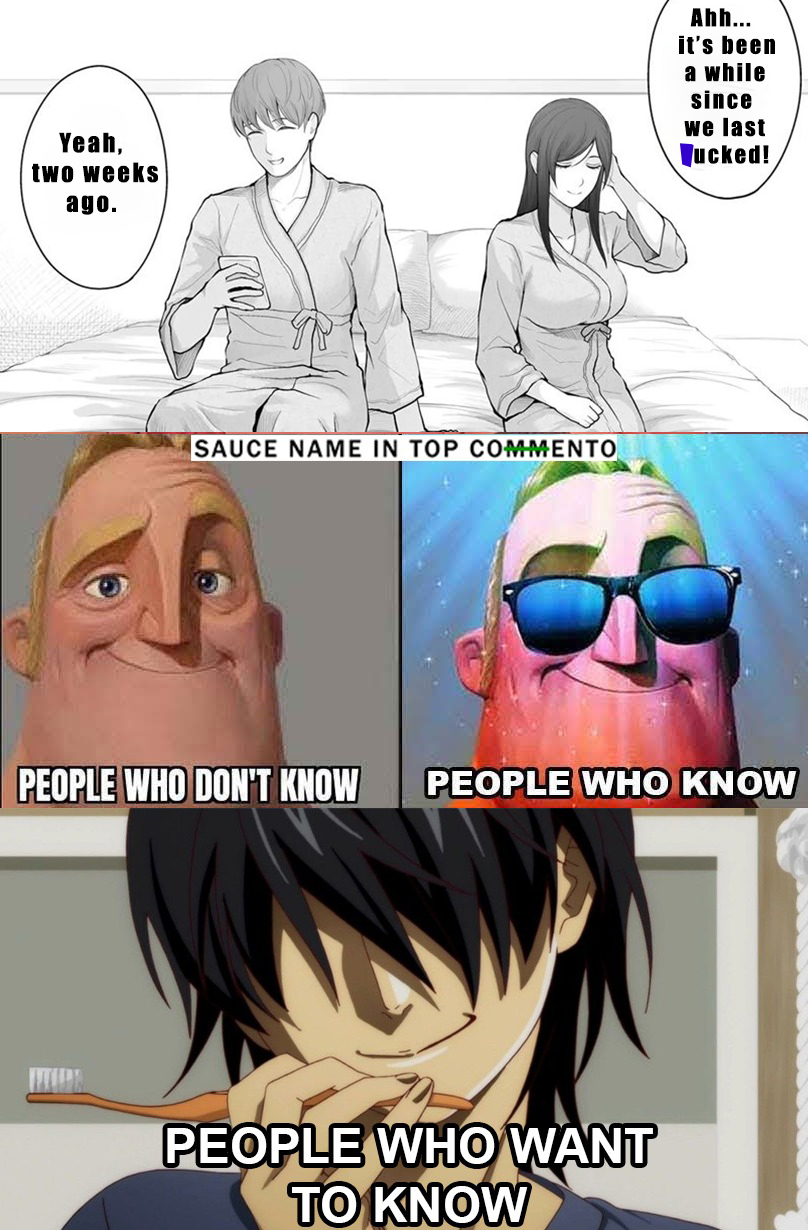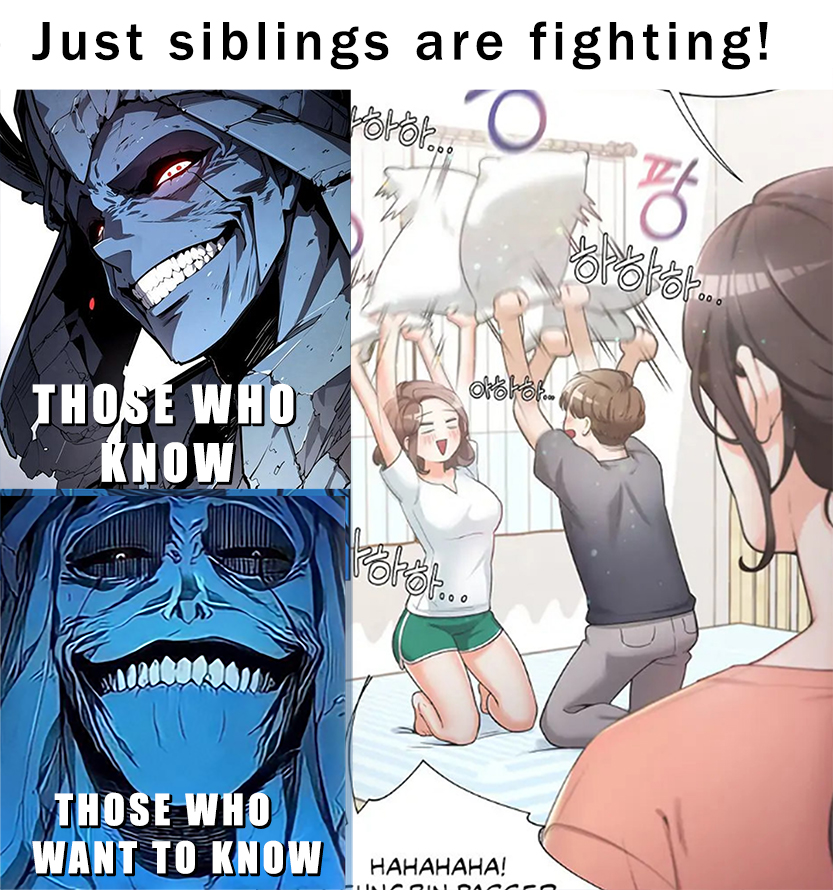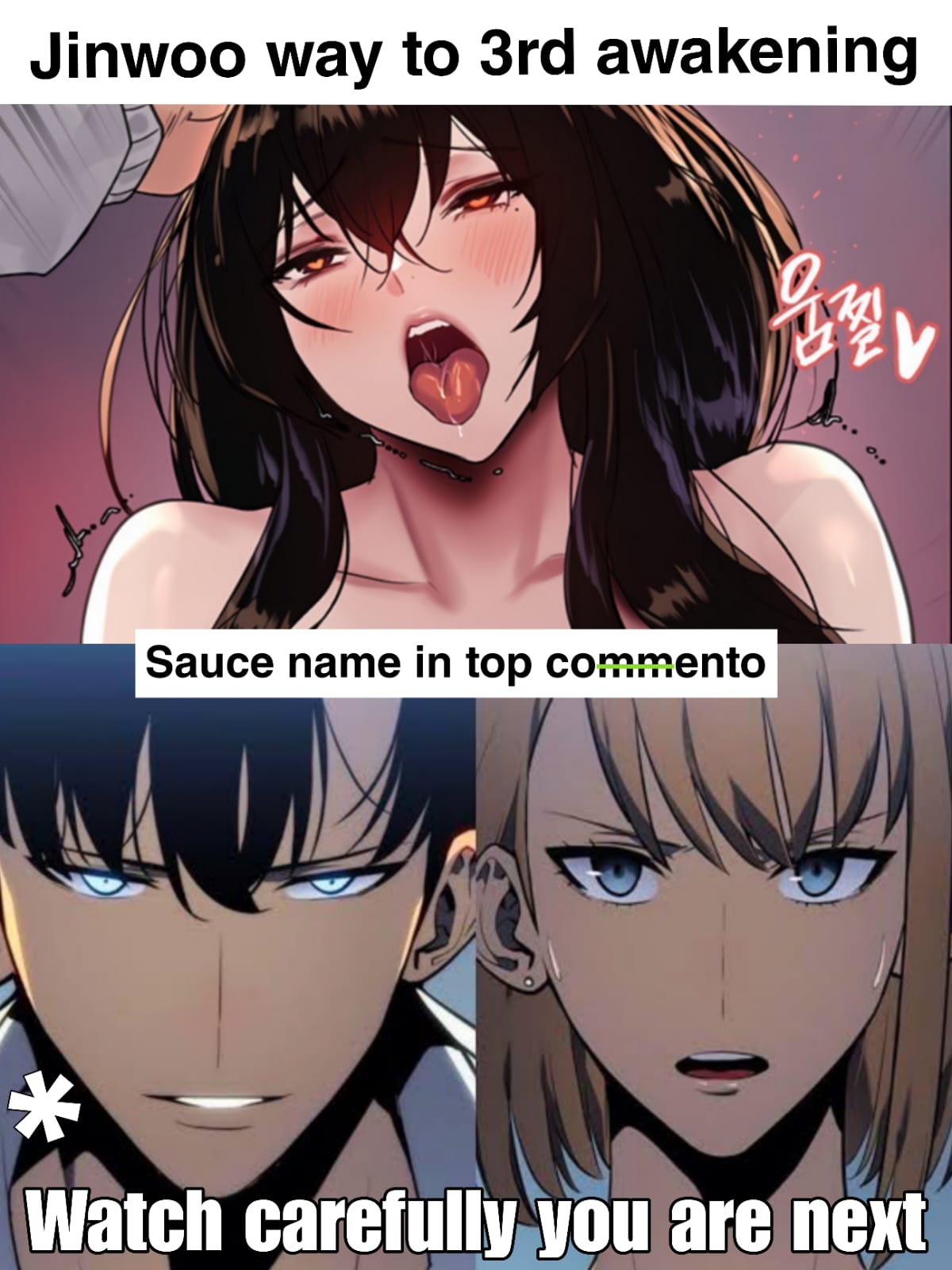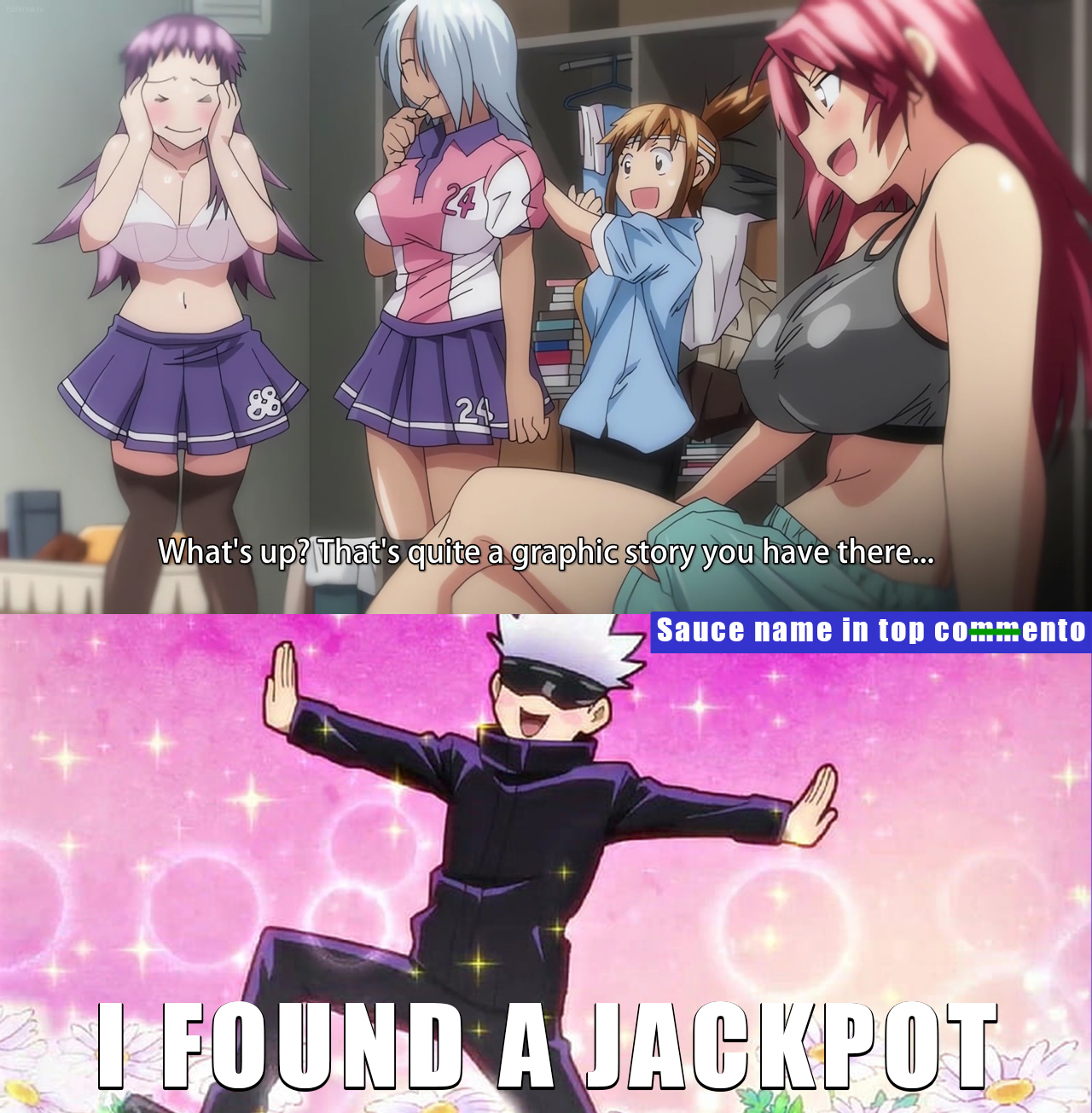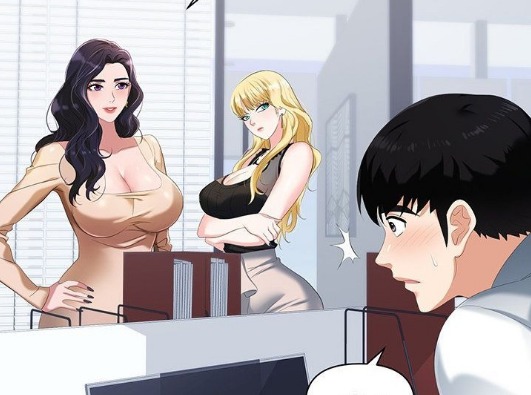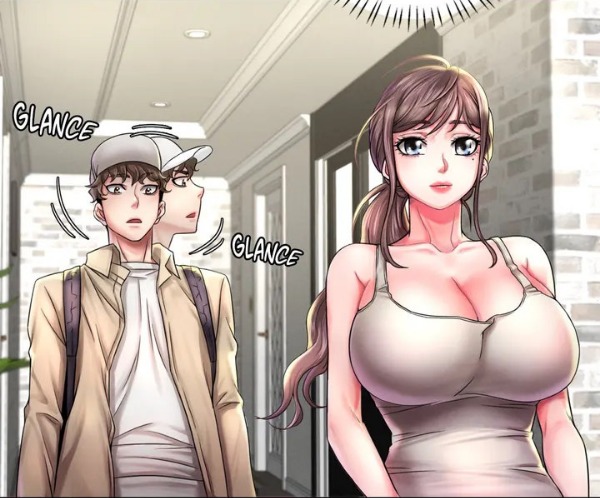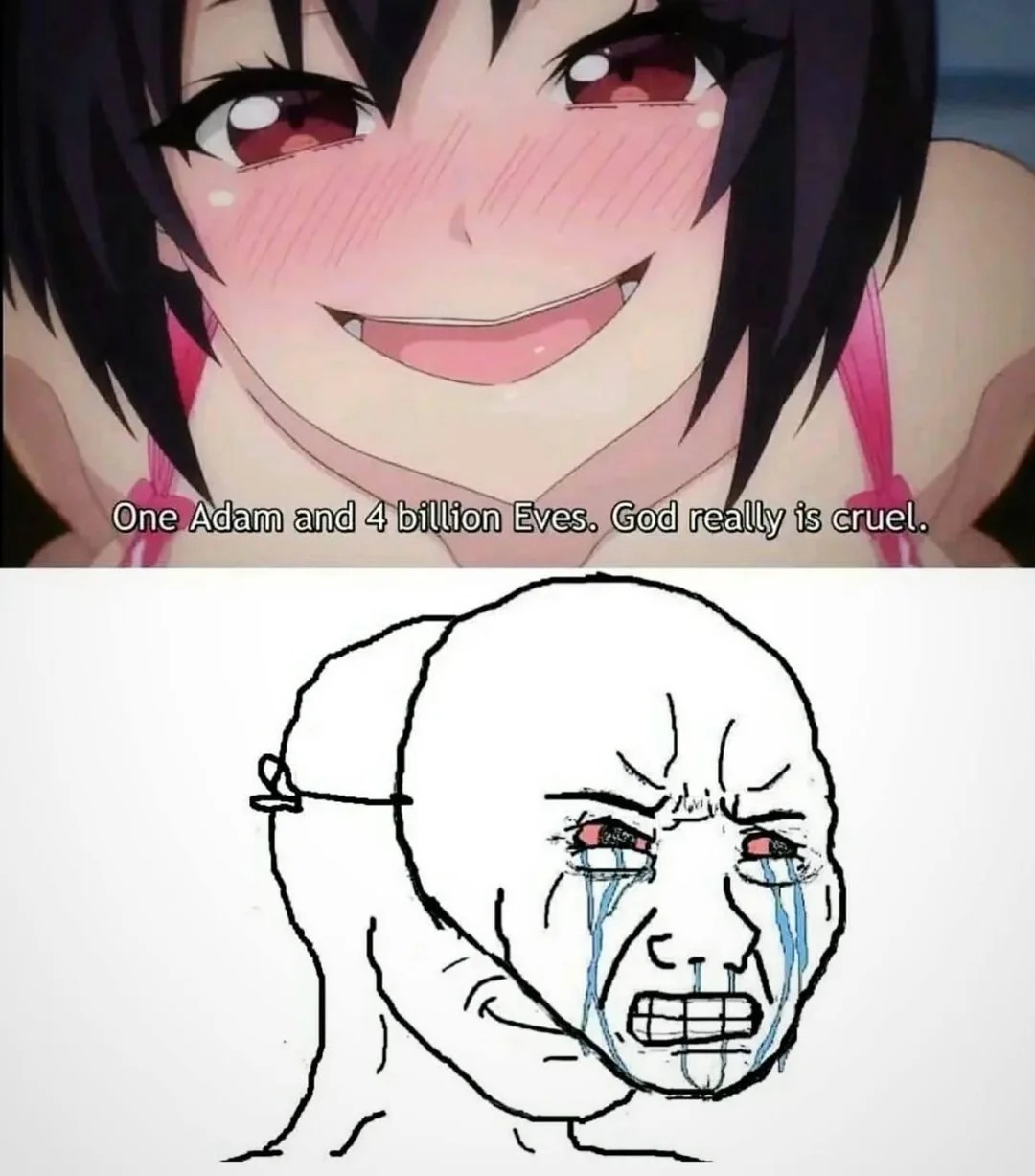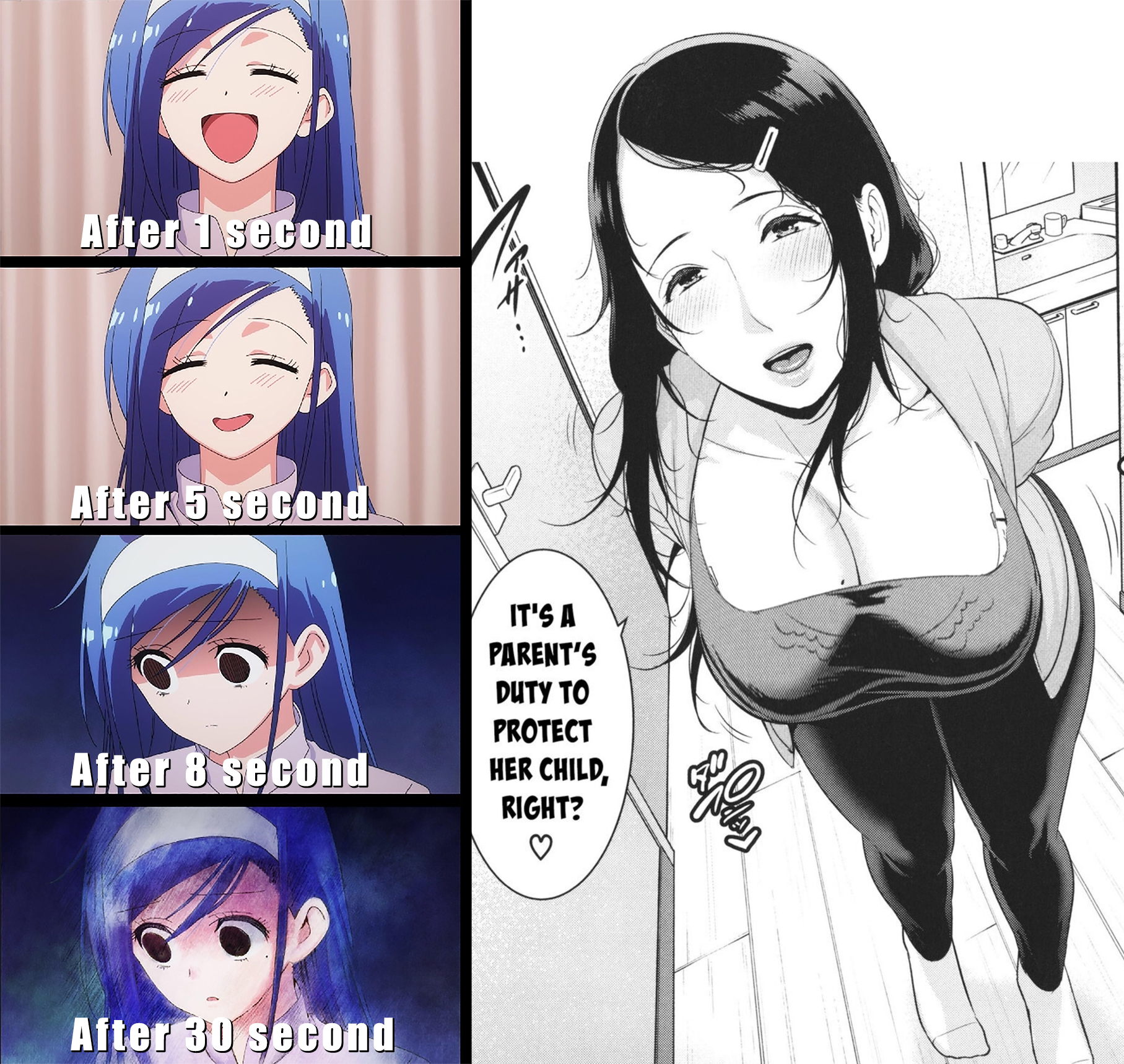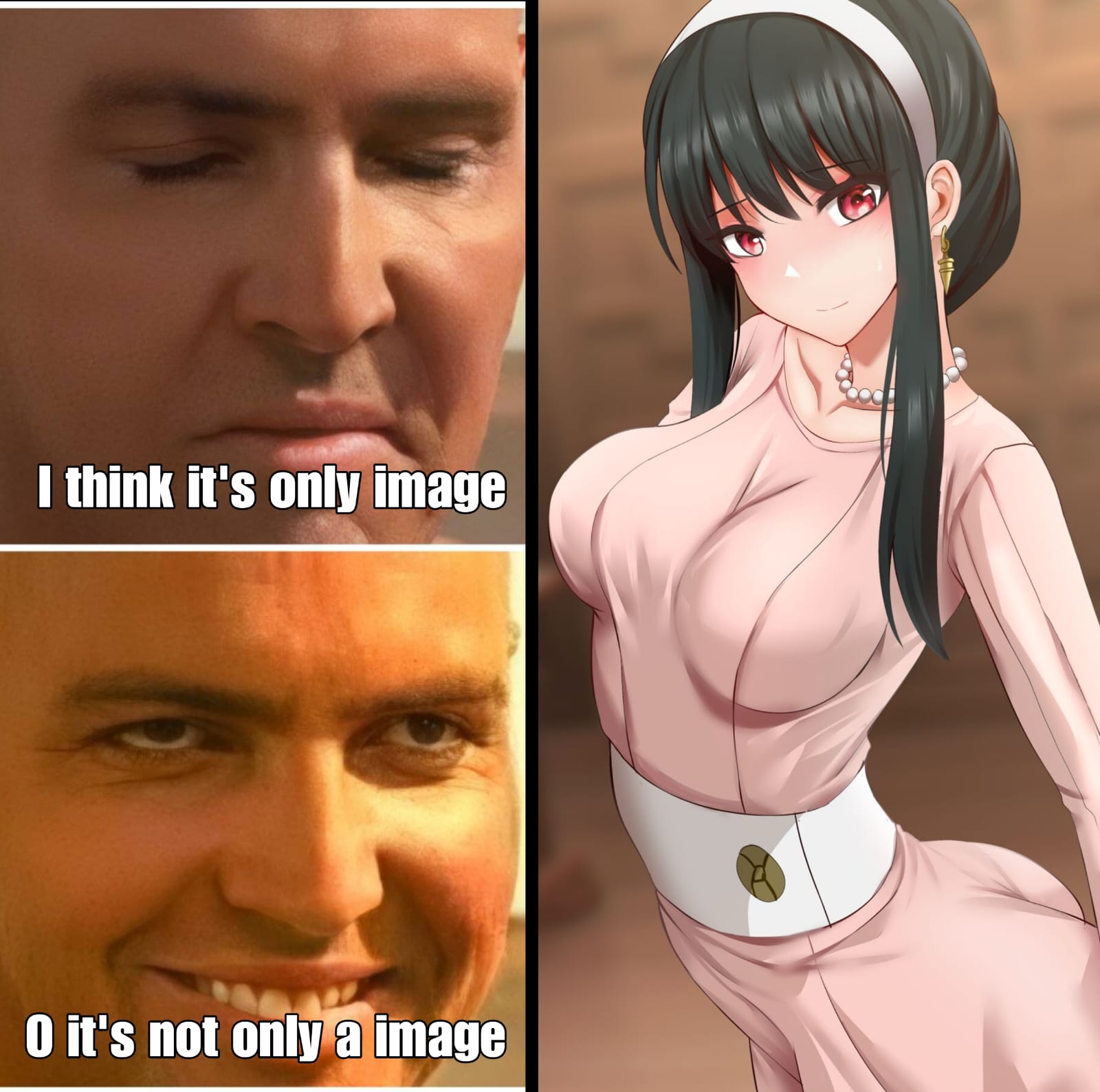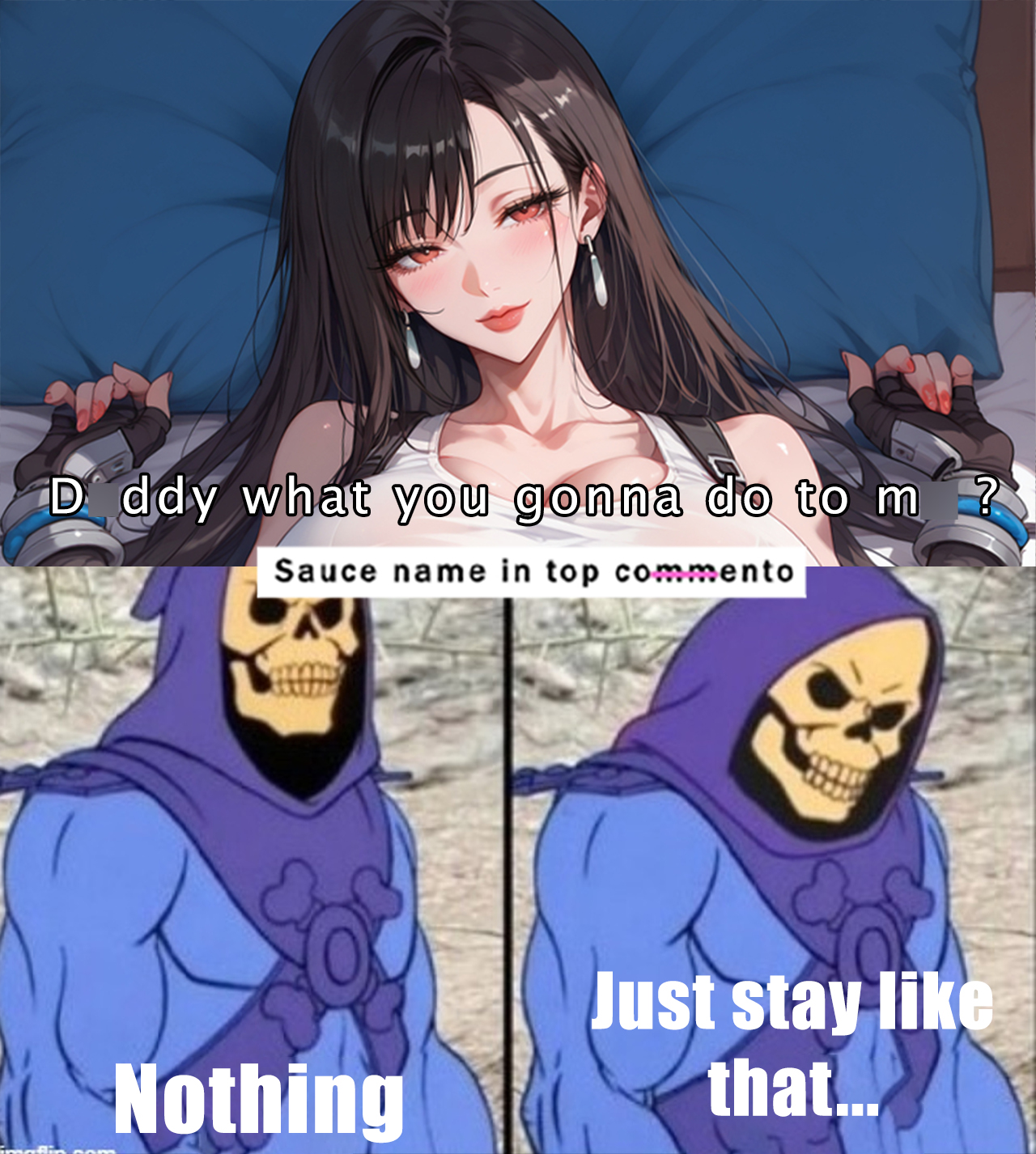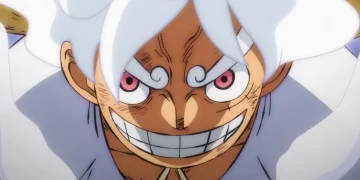If you’re a fan of the Yakuza series, chances are you’ve relished the immersive experience of Japan’s notorious gangsters. The franchise offers more than just adrenaline-pumping action; it presents an amazing narrative that goes into the complexities of a reformed gangster’s life, a rarity in gaming circles.
Now, imagine extending that experience beyond gaming, into anime. While many enthusiasts eagerly await an action-packed slice-of-life anime adaptation of Yakuza, there’s a treasure trove of similar narratives already in existence.
Infinite Wealth presents an intriguing perspective, offering a peek into the lives of beloved characters like Ichiban Kasuga and Kazuma Kiryu. For fans yearning to explore the same thrilling adventures and emotionally resonant stories found in the Yakuza games, delving into anime that also explore Japan’s criminal underworld is a worthy pursuit.
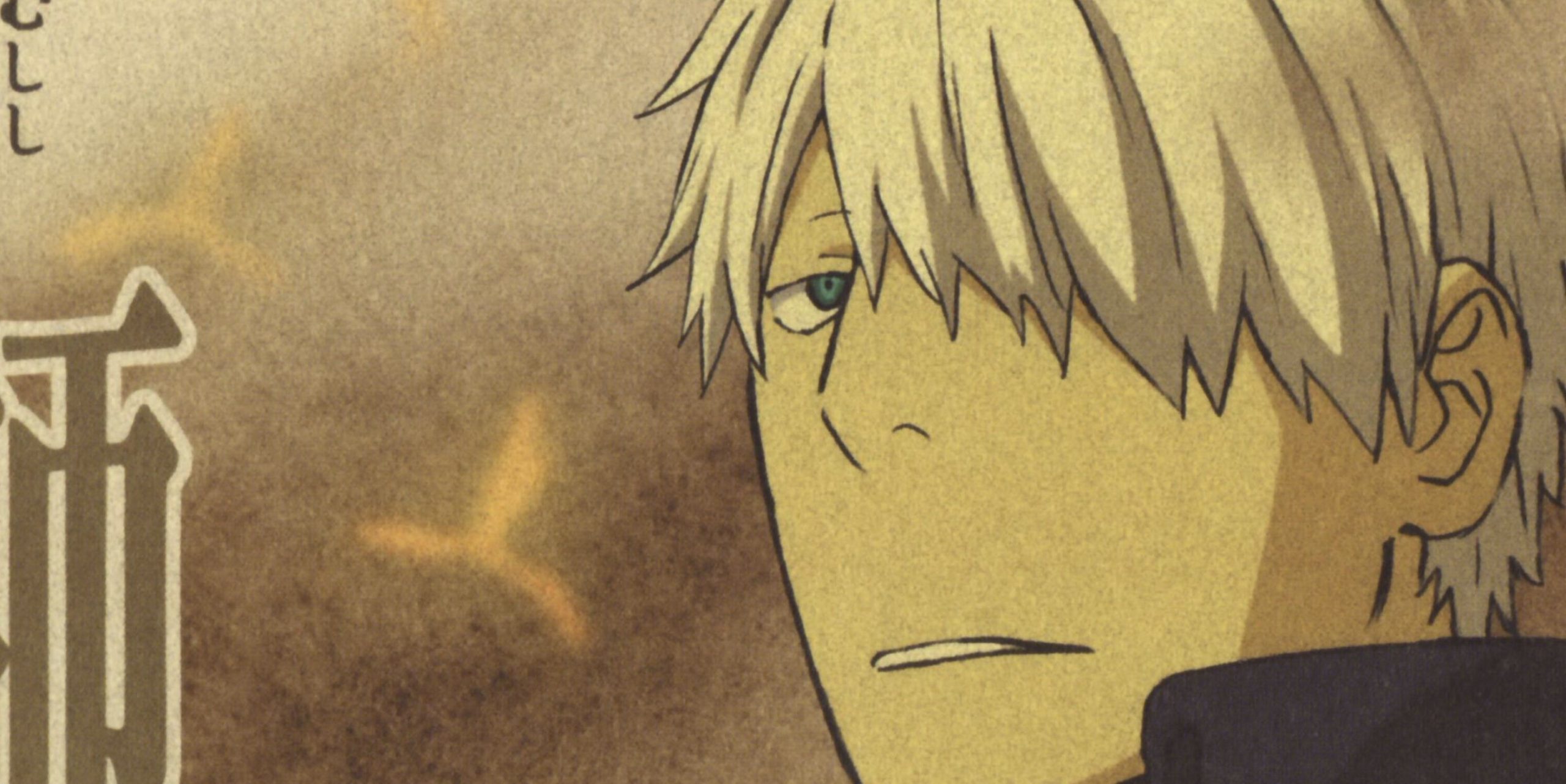
Surprisingly, older Yakuza-inspired anime serves as a gateway for fans to explore the sociocultural nuances of Japan’s organized crime and its portrayal in media.
These stories offer diverse perspectives, from a Yakuza-turned-teacher to a group of rowdy gangsters, showcasing themes of redemption, friendship, and the intricate dance between law and lawlessness.
While we await the possibility of a Yakuza anime, enthusiasts can immerse themselves in existing narratives that capture the core of the beloved game series. After all, the journey into the underworld of Japan’s organized crime is just as thrilling on the screen as it is in the virtual world.
Emblem Take 2 and 28 Other Anime Series Similar To Yakuza
Here is a list of the top 29 anime shows that you must watch if you love the plot and characters of Yakuza.
29. Emblem Take 2
Emblem Take 2, despite its name, doesn’t follow the traditional sequel format. Instead, it offers a unique premise where Kaeda Yakuza member Akutsu Jouji is granted a second chance at life.
A decade of misery follows a fateful altercation with university students in 1983, leading Jouji to contemplate suicide after his friend is tasked with ending his life.
However, when Jouji miraculously finds himself ten years in the past in 1993, he resolves to seize the opportunity to live differently with the knowledge of the future.
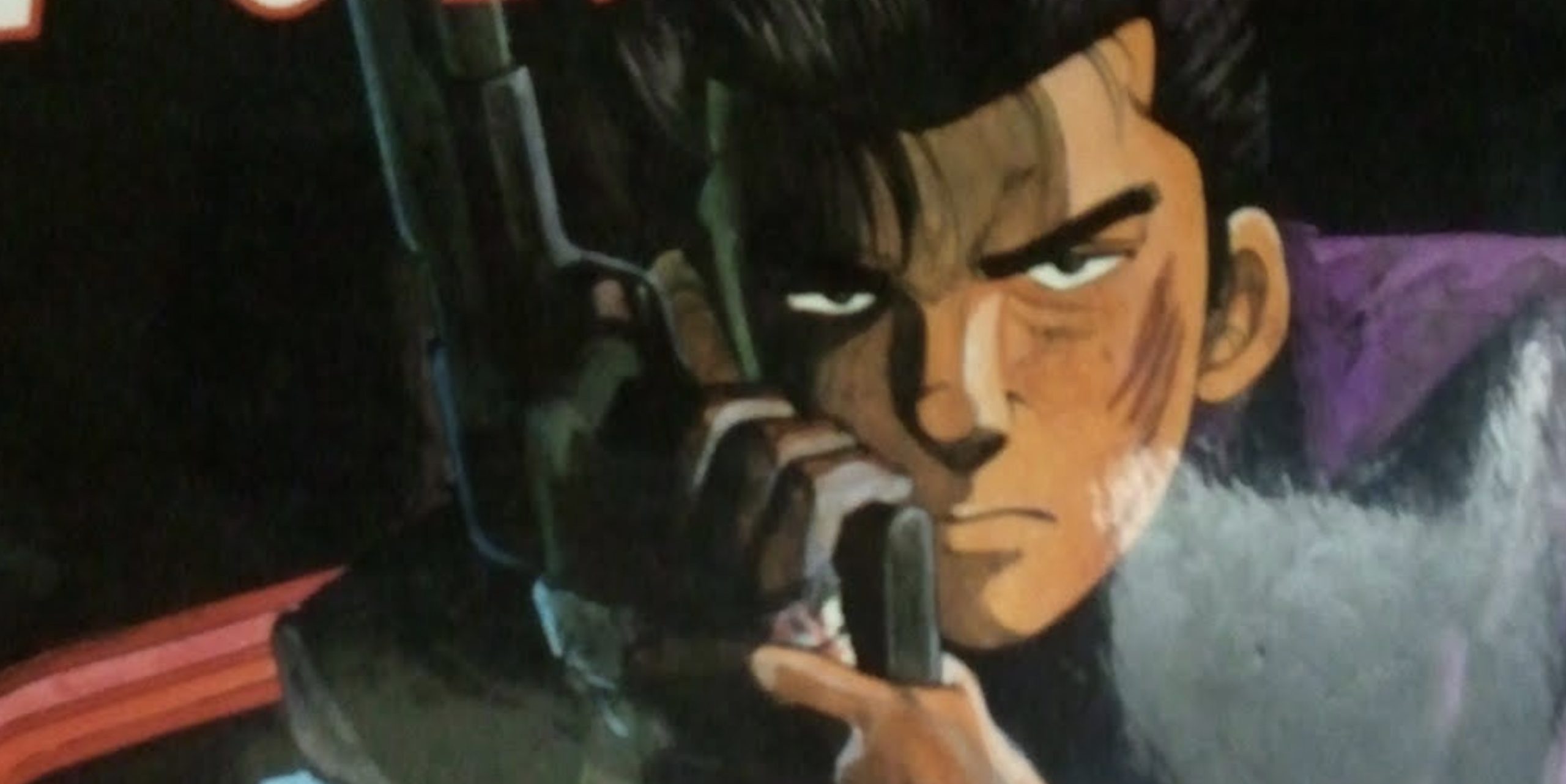
In Yakuza narratives, it’s uncommon to encounter a sci-fi twist interwoven with philosophical themes, especially from the perspective of a character like Jouji, who embodies the stereotype of a gangster.
While Emblem Take 2 maintains mature imagery, its exploration of themes like second chances adds depth to the storyline, offering a refreshing take on the genre.
In comparison to the wild tales often found in the Yakuza franchise, Emblem Take 2 presents a more subdued yet intriguing narrative with subtle sci-fi elements.
Jouji’s journey of redemption through time prompts contemplation on the choices and circumstances that shape the lives of Yakuza members, providing nuanced insights into characters like Kiryu and his cohorts and their paths throughout the franchise.
28. Naniwa Yuukyouden (OVA)
Also known as “Osaka Tough Guys” or “Naniwa Spirit,” the tale of Naniwa Yuukyouden revolves around the escapades of the Kinshu Group, led by the formidable Taido Kaimon.
Their antics frequently land them in hot water with law enforcement, the opposite sex, and even among themselves. The narrative, typical of Yakuza stories, is peppered with mild nudity, a hallmark of older adult-oriented anime.
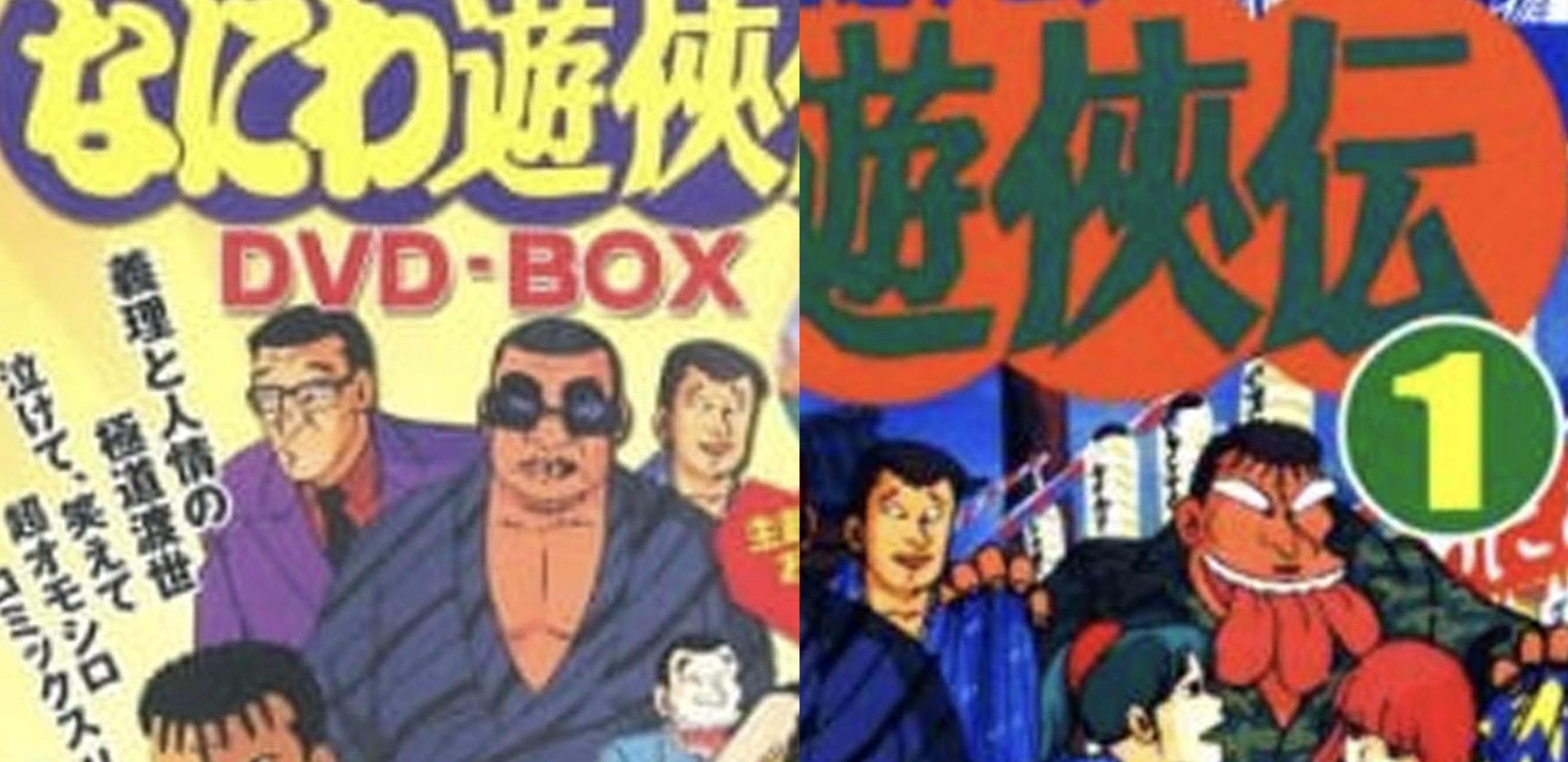
Despite its mature themes, Naniwa Yuukyouden offers a fresh perspective on the tropes often explored in traditional Yakuza media. The portrayal of Yakuza members as cunning leaders, violent enforcers, and even comedic figures adds depth to the narrative, showcasing the multifaceted nature of organized crime in Japan.
While the mature content of Naniwa Yuukyouden may raise eyebrows, its comedic approach provides valuable context for understanding the more nuanced aspects of the Yakuza universe.
Though the humor may feel dated by contemporary standards, the OVA’s contribution to the evolution of Yakuza storytelling is undeniable. It serves as a reminder of how the genre has progressed, offering more complex narratives that go into the intricacies of organized crime without relying solely on hyper-violence for impact.
27. High School Jingi
When Aki Jouji, a former member of the Yakuza, finds himself tasked with teaching at Gokuraku Private High School by his boss, the transition isn’t smooth sailing. Initially struggling to connect with his younger students, Jouji’s discomfort often leads him to revert to his old gangster habits, resorting to unconventional methods like brandishing his guns to assert authority.
Yet, amidst the chaos, Jouji’s quirky antics endear him to the students, especially when he reveals his unexpectedly adorable “kewpie” eyes beneath his sunglasses.
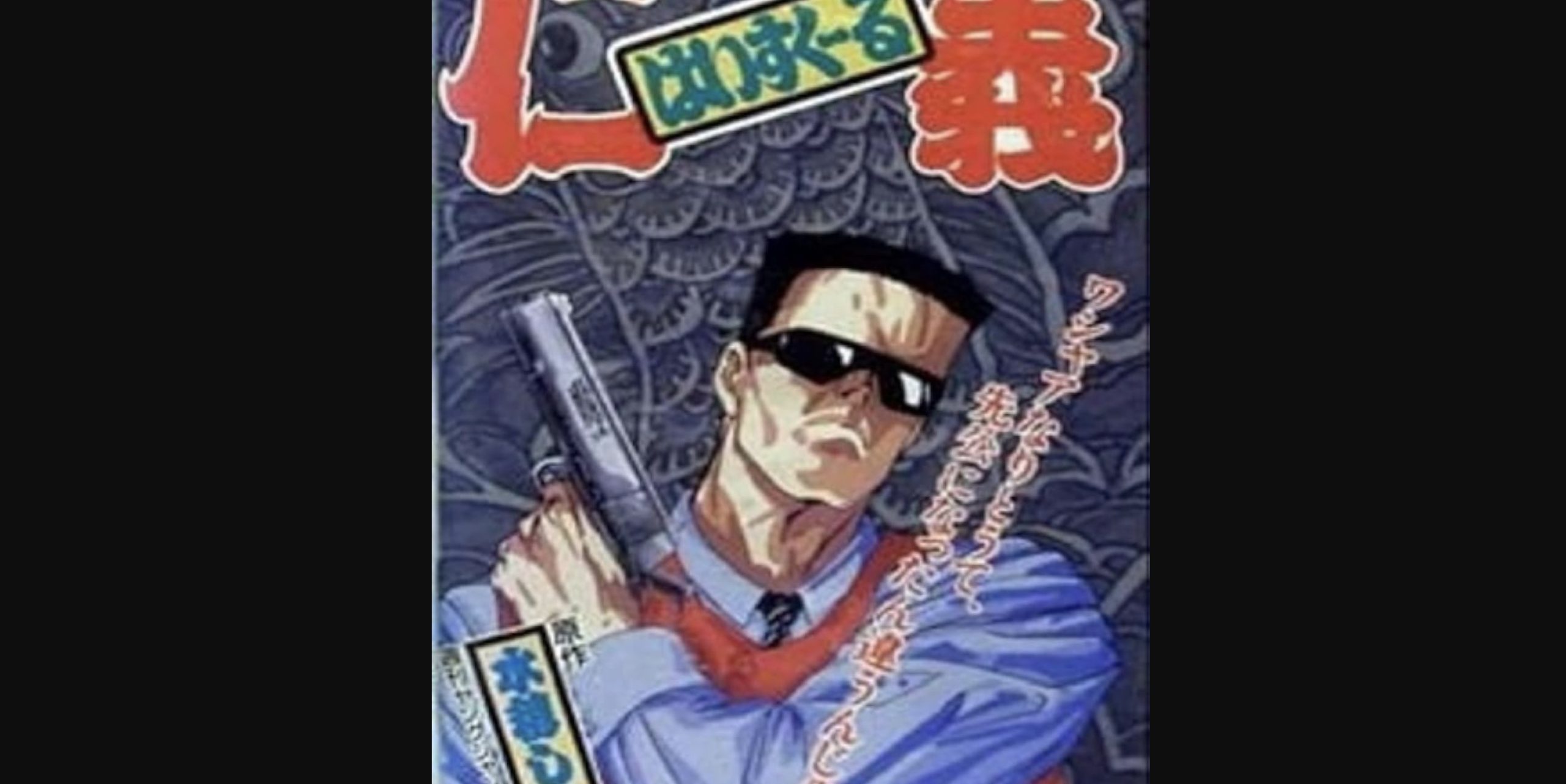
This charming quirk earns him the nickname “Kewpie From Hell,” a recurring joke throughout the series. At the heart of the comedy lies Jouji’s unrequited crush on Reiko Shiratori, whom he’s determined to keep in the dark about his criminal past.
Some may argue that “High School Jingi” lacks the depth and polished humor of a similar series, citing its dated animation and dry wit as drawbacks.
However, despite these criticisms, the show stands out for its unique portrayal of a regular Yakuza member thrust into the role of a teacher, rather than a protagonist with tangential ties to the underworld.
In many ways, “High School Jingi” mirrors the slice-of-life elements seen in the Yakuza games, deviating from the genre’s tendency towards excessive violence.
While it may not reach the same heights as acclaimed series like “Gokusen” or “GTO,” “High School Jingi” offers a refreshing take on the gangster-turned-teacher trope, injecting humor and humanity into a typically gritty narrative.
26. Banana Fish
In 80s storytelling, Banana Fish stands out as a masterpiece, lauded for its bold exploration of modern themes amidst a plotline dominated by romantic fantasies.
Originally a critically acclaimed manga, Banana Fish was adapted into an anime in 2018, amazing audiences with its gripping narrative centered around street gang leader Ash Lynx.
As Ash goes into the mystery of “banana fish,” he finds himself entangled in a web of conspiracy that irrevocably alters his life. The anime goes deep into Ash’s tumultuous past as an abused child of Corsican mafia boss Dino Golzine, as he grapples with his traumatic upbringing and sets out to dismantle the very organization that once groomed him for leadership.
While Banana Fish may be more mature in its storytelling compared to Yakuza, its setting in New York offers a refreshing departure from the Japan-focused narratives typically seen in the genre.
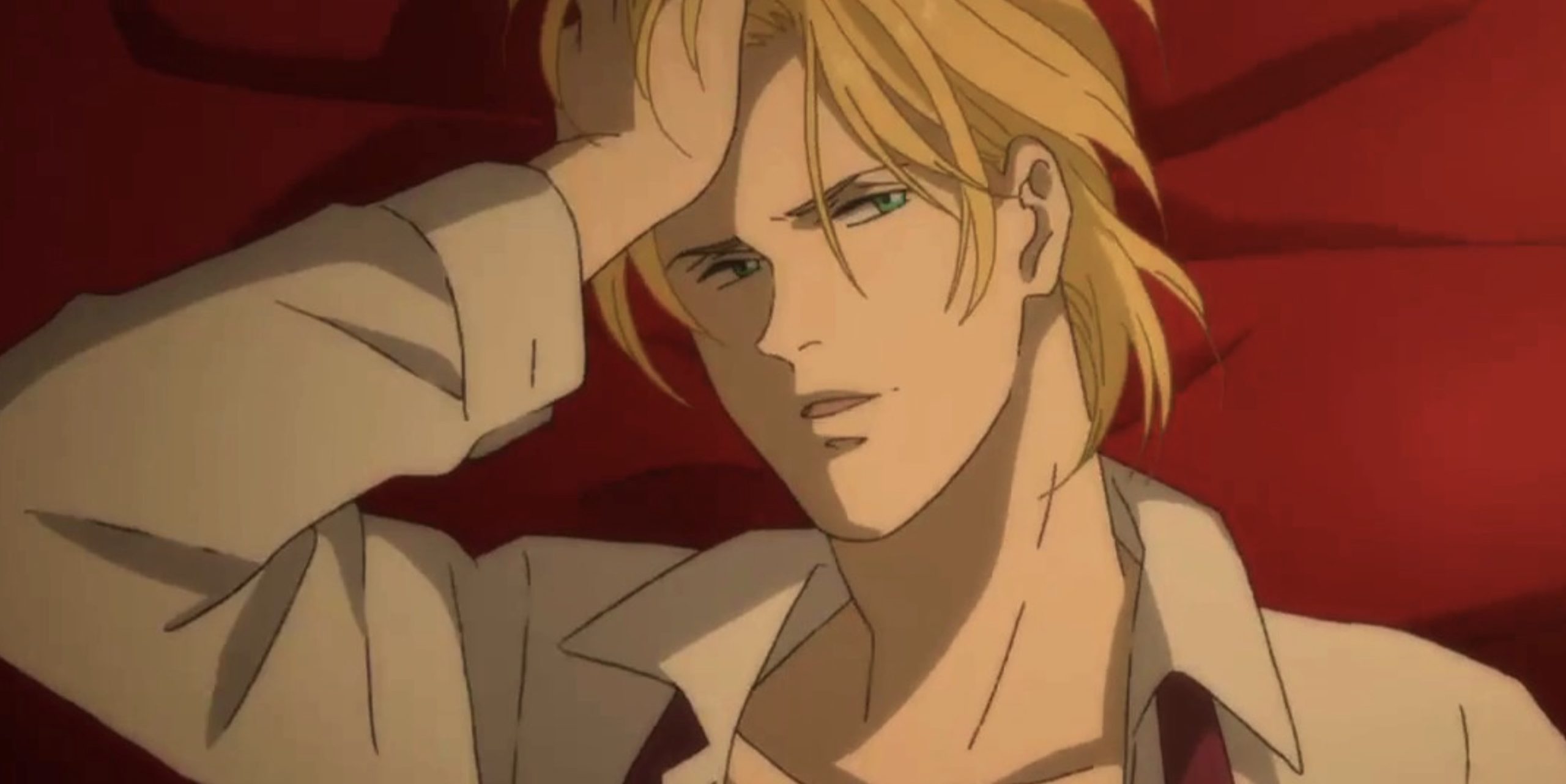
The series serves as an amazing exploration of complex characters and dark themes, offering viewers a compelling and evocative journey through the gritty streets of New York City.
The personal journeys depicted in Banana Fish resonate with the struggles faced by Kazuma Kiryu throughout his adventures in the Like a Dragon franchise. Both narratives go deep into the protagonists’ inner conflicts and challenges, extending beyond mere confrontations with rival criminal factions.
In Banana Fish, Ash Lynx’s exploration of the “banana fish” phenomenon leads him on a path fraught with danger and discovery, mirroring Kiryu’s own quest for truth and redemption.
What sets Banana Fish apart is its unique perspective on gang life and culture, particularly within the context of the 1980s United States. While Like a Dragon primarily explores in the Japanese underworld, Banana Fish offers viewers an amazing peek into the gritty streets of America, providing a fresh take on familiar themes of loyalty, betrayal, and survival.
For fans of Like a Dragon seeking a compelling exploration of gang dynamics from a Western viewpoint, Banana Fish proves to be a riveting and thought-provoking watch.
25. Bungo Stray Dogs
In the anime, Bungo Stray Dogs offers a unique perspective on the investigators through the lens of the Armed Detective Agency.
Protagonists Atsushi Nakajima and Osamu Dazai, endowed with superhuman abilities, find themselves embroiled in the affairs of other supernaturally gifted groups, expanding their investigations beyond conventional bounds.
While the series doesn’t directly focus on the Yakuza, Bungo Stray Dogs presents an amazing exploration of detective work from the viewpoint of individuals with extraordinary powers.
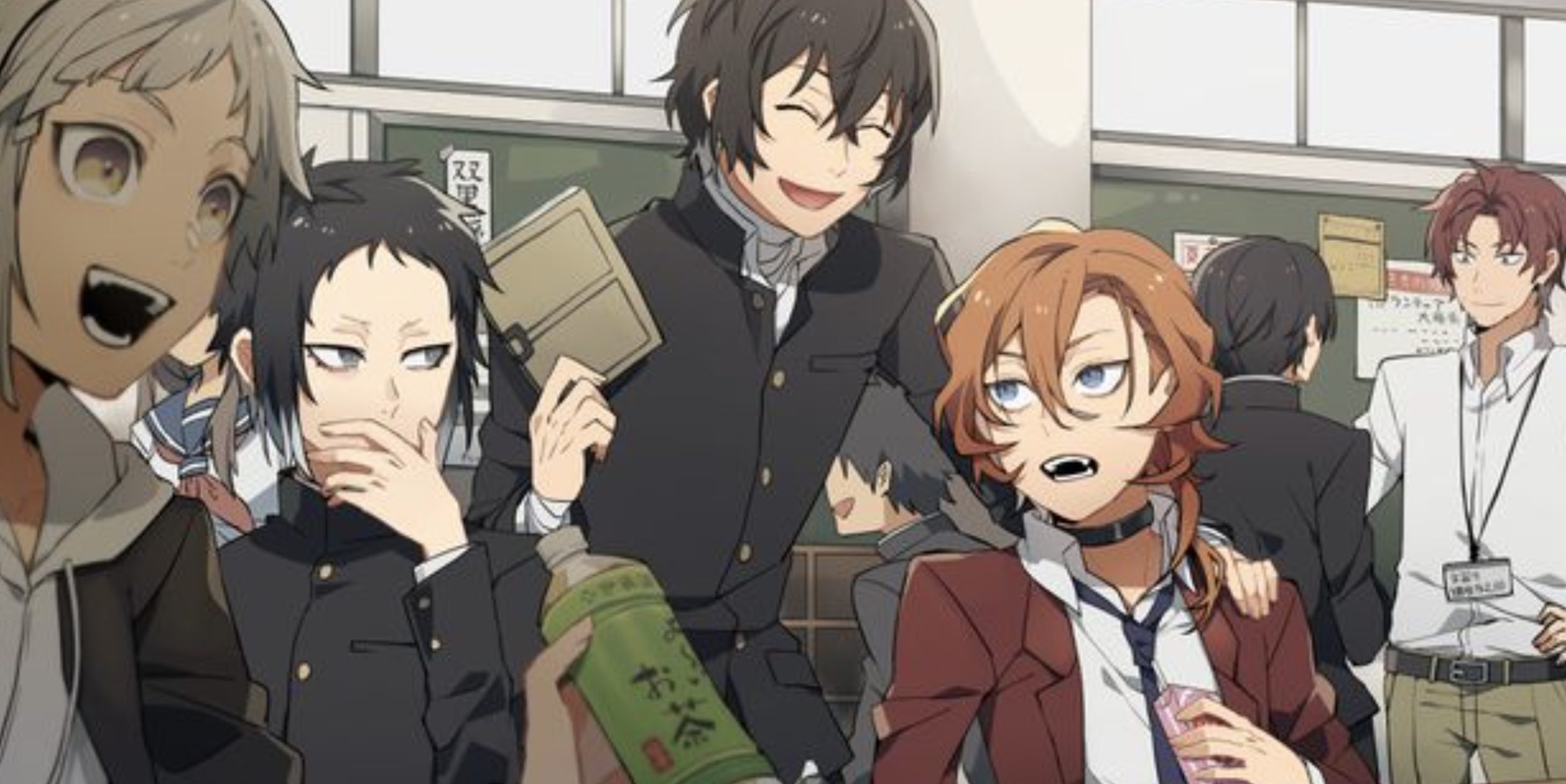
Organizations like the Port Mafia, the Guild, and the Decay of Angels, which operate outside the Agency, exhibit Yakuza-like qualities with their involvement in activities that skirt the edges of legality.
Similar to the intricate dynamics between Yakuza families and organizations like the Ministry of Intelligence Agency depicted in Like a Dragon, Bungo Stray Dogs reveals a complex network of factions within its world.
The protagonist’s Armed Detective Agency is just one component of the Tripartite Framework, alongside the Military Police and the Port Mafia, responsible for managing Ability Users. Fans intrigued by the interplay between factions in Like a Dragon are sure to find Bungo Stray Dogs’s portrayal of these relationships equally enthralling.
24. The Millionaire Detective Balance: Unlimited
In anime, the focus on the daily operations of modern police forces is a rarity, making The Millionaire Detective Balance: Unlimited a standout with its portrayal of the comedic escapades of detectives Daisuke and Haru.
The story kicks off with the arrival of the affluent detective Daisuke Kambe at the Modern Crime Prevention Headquarters, where officers with a penchant for trouble are stationed.
Paired with the fiery Haru Kato, their contrasting personalities fuel hilarious clashes, particularly over Daisuke’s tendency to rely on bribery.
While The Millionaire Detective may not immediately go into the Yakuza, its exploration of law enforcement offers a compelling contrast to the criminal underworld.
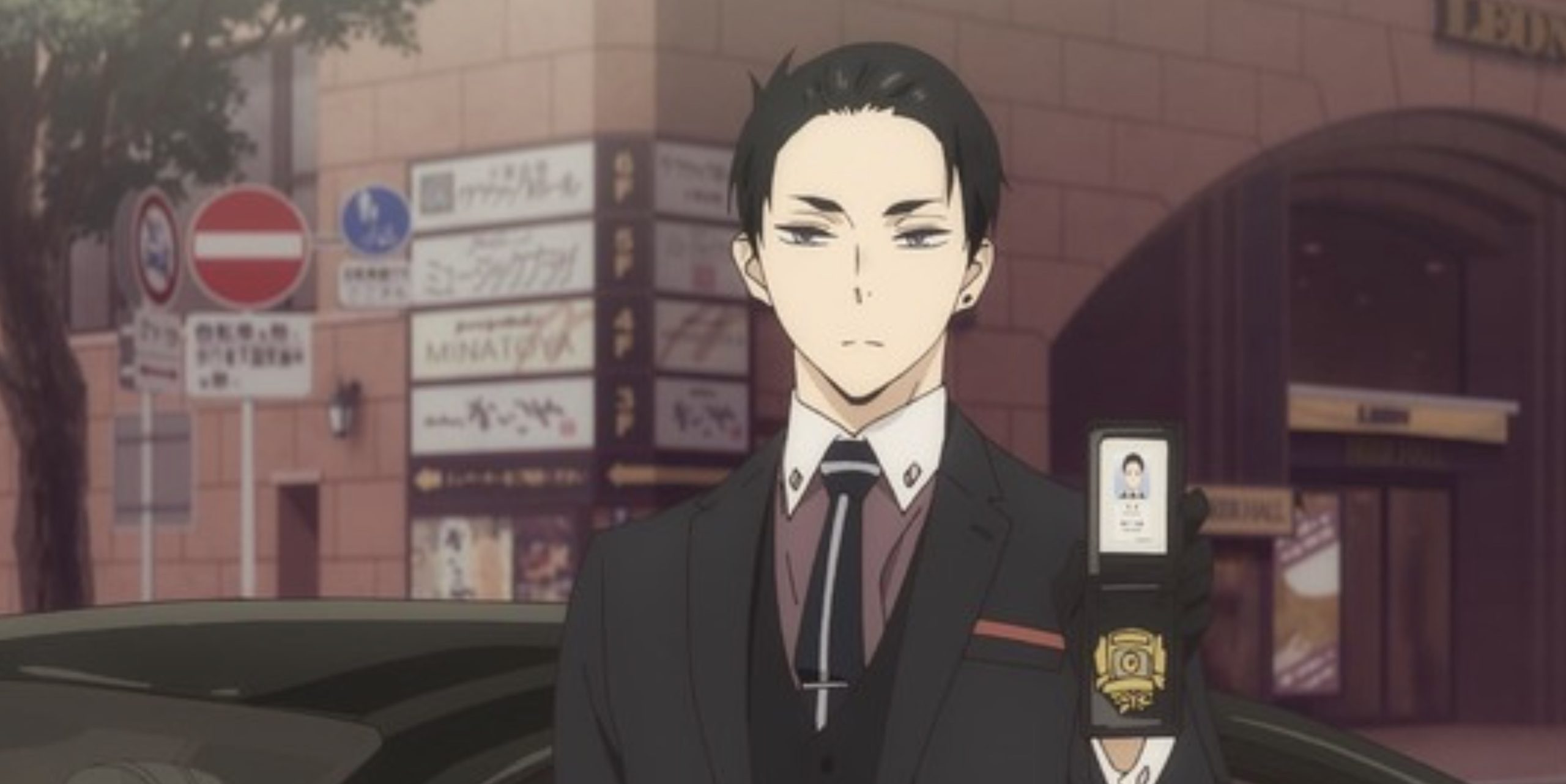
The anime provides a fresh perspective on police activities, offering insights into the challenges and dynamics of pursuing individuals akin to Yakuza protagonists like Kazuma Kiryu and Ichiban Kasuga.
The dynamic between Daisuke Kambe and Haru Katou mirrors the archetype of the buddy-cop duo, presenting a more “official” angle on why characters like Kiryu might have worked as secret agents for the police rather than affiliating with factions like the Daidoji Faction.
The Modern Crime Prevention Headquarters resembles entities like the Ministry of Intelligence Agency from the Like A Dragon games, providing viewers with a peek into the investigative side of law enforcement as they solve crimes and pursue criminals, a departure from the perspective of Yakuza evading capture.
23. Buddy Daddies
For aficionados of the Yakuza series seeking a fresh take on unconventional family dynamics, Buddy Daddies offers a compelling narrative. The anime follows assassins Kazuki Kurusu and Rei Suwa as they unexpectedly find themselves caring for Miri Unasaka, the child of their recent assassination target.
The premise of criminals assuming parental responsibilities echoes Kazuma Kiryu’s journey in the Yakuza series, particularly his establishment of Sunshine Orphanage.
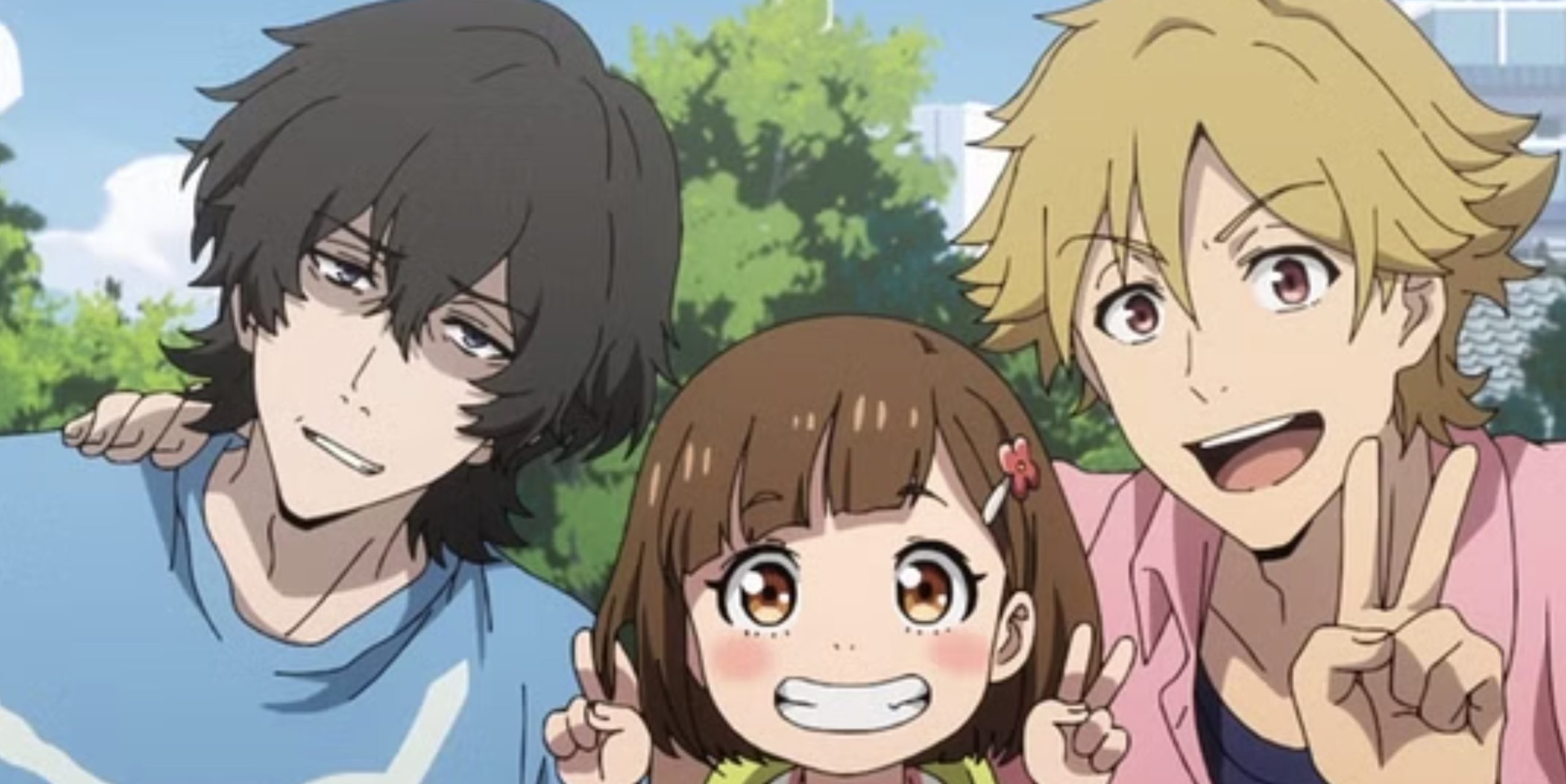
Viewers are treated to the contrasting personalities of Kazuki, who is lively and well-informed, and Rei, who is stoic and skilled in combat, as well as the origins of their unlikely friendship.
In Buddy Daddies, parallels can be drawn between the dynamic of Kazuki and Rei and that of Kazuma Kiryu and his former partner Akira Nishikiyama.
However, unlike Kiryu’s experiences, the anime duo must explore the complexities of their profession while caring for a child, reminiscent of Kiryu’s dual role in managing the Morning Glory Orphanage while being called back into the Yakuza world.
Although Yakuza themes are not front and center in Buddy Daddies, witnessing Kazuki and Rei balance their contractual obligations with everyday life evokes memories of Kiryu’s early days and the challenges he faced.
22. Spy x Family
In Spy x Family, Loid Forger leads a double life as both an ordinary husband and the elusive secret agent known as Twilight. Tasked with maintaining peace between the nations of Westalia and Ostania, Loid’s mission involves spying on the reclusive Donovan Desmond, a key figure in Ostania’s power structure.
To infiltrate Desmond’s inner circle, Loid orchestrates a cunning plan: he marries Yor Briar, a seemingly ordinary woman who unbeknownst to him is a skilled assassin, and together they adopt Anya, a child with telepathic abilities. The resulting trio’s interactions are filled with comedic deception, providing a refreshing departure from the typical Yakuza narrative.
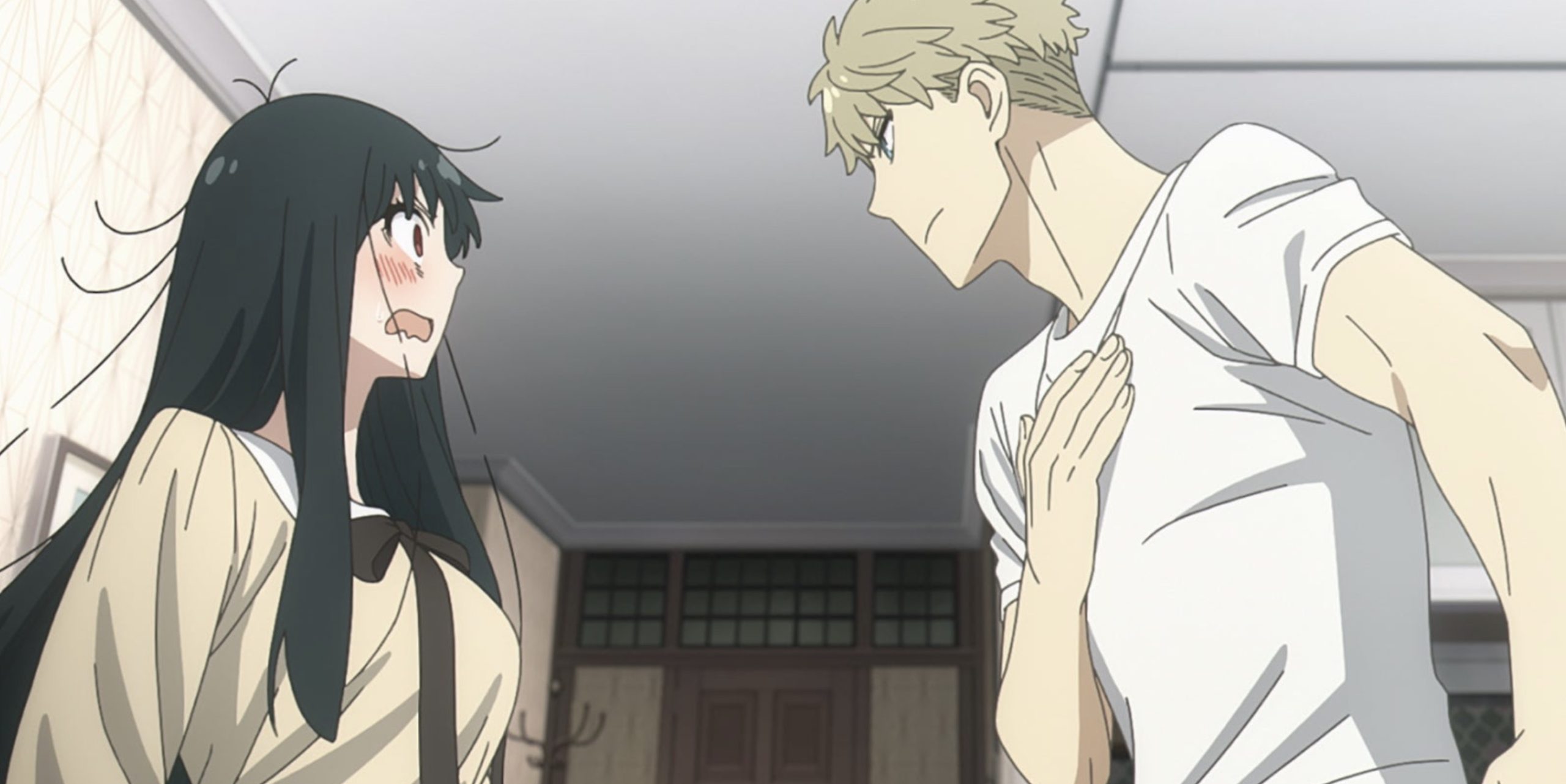
Despite the light-hearted family dynamics, Spy x Family shares similarities with Yakuza in its portrayal of characters exploring complex relationships and dangerous situations while striving to achieve their objectives.
While the criminal factions in Spy x Family are distinctly Western-inspired rather than Japanese Yakuza, fans of the Yakuza series will find familiarity in the themes of loyalty, intrigue, and unconventional alliances depicted in the anime.
21. Sanctuary
The dynamic of best friends turned rivals is a classic trope found in many shonen and seinen tales, and it’s a theme embraced by Sanctuary. Survivors of the Khmer Rouge massacre, Asami and Houjou seek solace and purpose in Japan, aspiring to carve out their own “sanctuary,” even if they must forge it themselves. Their paths diverge as one enters politics while the other goes into the underworld as a gangster.
As their ambitions drive them to climb the ranks in their respective fields, Asami and Houjou find themselves on a collision course, their once unbreakable bond strained by conflicting loyalties and goals.
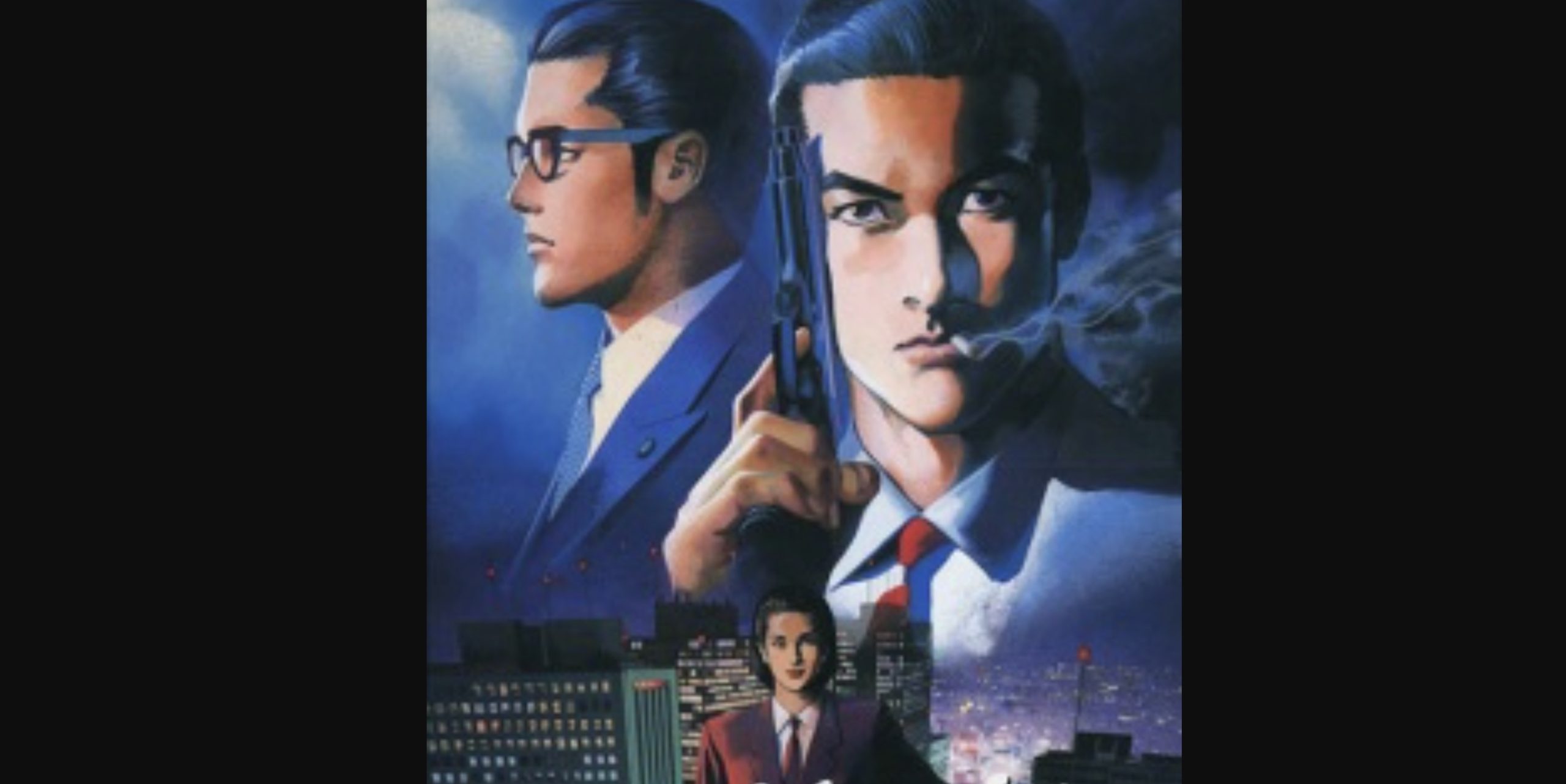
Against the backdrop of Yakuza intrigue and the haunting legacy of the Khmer Rouge, Sanctuary injects depth into the organized crime narrative.
While the trope of cops versus gangsters is a familiar one in crime dramas, Sanctuary offers a nuanced exploration reminiscent of classic Yakuza stories from the 80s and ’90s.
The inevitability of their confrontation adds tension to the plot, but it’s the journey toward that climactic showdown that truly amazes. Witnessing the tenacity and ambition that propel Asami and Houjou toward their fateful reunion raises the narrative, making their eventual clash all the more compelling and meaningful.
20. Kaiji: Ultimate Survivor
In Yakuza-like narratives, Kaiji: Ultimate Survivor stands out for its gripping portrayal of an ordinary protagonist thrust into treacherous high-stakes gambling. Protagonist Kaiji Ito finds himself aboard the Espoir, coerced into participating in games of chance to repay his debts to a ruthless loan shark.
As Kaiji explores the perilous waters of the ship, he encounters fellow debtors with their own harrowing tales and must use his wits to survive.
While Kaiji: Ultimate Survivor may not directly involve rivaling gangs like in traditional Yakuza stories, its premise of a civilian entangled in a seedy underworld shares similarities with the themes often explored in the Yakuza games.
The notion of individuals making deals with criminals that they don’t fully comprehend reflects the precarious situations faced by protagonists like Kiryu in the Yakuza series.
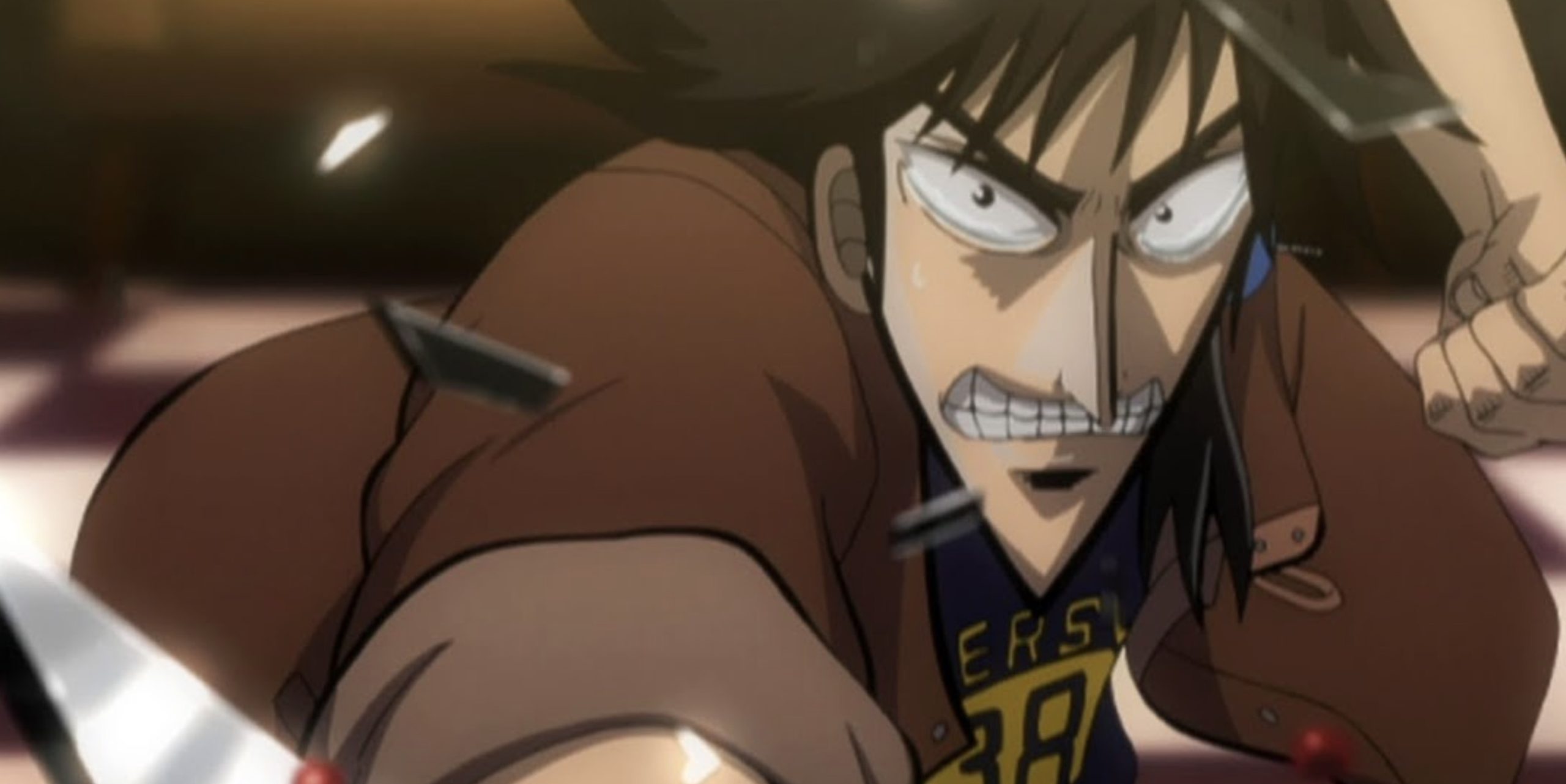
At its core, Kaiji: Ultimate Survivor embodies the spirit of desperation and survival against overwhelming odds, akin to the challenges faced by Yakuza members.
The gambling-centric narrative mirrors the gambling minigames prevalent in games like Like a Dragon, where protagonists must demonstrate unwavering tenacity and cunning to overcome their adversaries.
Despite lacking the physical strength and connections of traditional Yakuza members, Kaiji’s ability to outwit his opponents in games of chance evokes the same sense of resilience and determination found in Yakuza protagonists.
Thus, Kaiji: Ultimate Survivor offers a compelling parallel to the Yakuza universe, showcasing the indomitable spirit of individuals facing adversity in the criminal underworld.
19. Dorohedoro
Dorohedoro, despite its manga origins spanning from 2000 to 2014, finally received its long-awaited anime adaptation in 2019, and it proved to be well worth the wait. Set in a dystopian modern fantasy world, the series embodies all the elements necessary for a Yakuza-esque setting, with its three major factions each ruling over their own crime-infested society.
At the heart of the story lies the Hole, a favela-like city inhabited by powerless Humans who find themselves caught in the power struggle between rival Sorcerer factions.
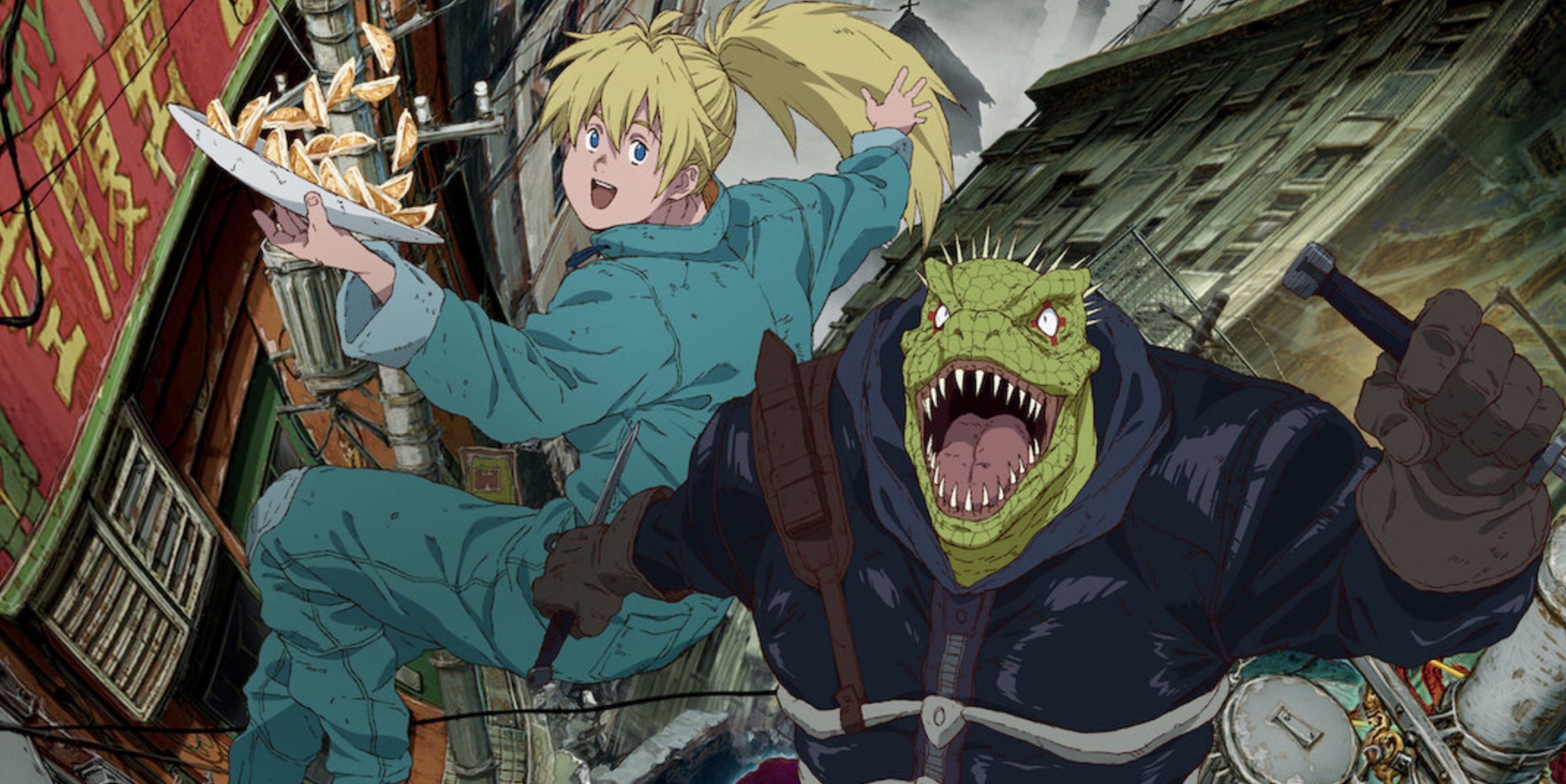
Protagonist Caiman, a reptile-headed amnesiac, begins a quest to uncover the truth about his past and reverse the curse that deformed his head. Along the way, he becomes entangled with the rebellious Cross-Eyes gang and draws the ire of En, the powerful crime boss who seeks to thwart his endeavors.
The intrigue surrounding Caiman’s amnesia and his involvement with warring factions provides a fresh take on the Yakuza formula. While Caiman’s appearance may differ from the protagonists of Like a Dragon, the dynamics within institutions like the En Family, the Cross-Eyes Gang, and the various rogues of the Hole mirror the complex interplay between interacting clans in the Yakuza games.
Caiman’s journey of self-discovery and his quest for identity resonate with viewers, much like the personal missions undertaken by Kazuma Kiryu, Kasuga Ichiban, and Goro Majima in the Yakuza series.
In Dorohedoro, as in Yakuza, the exploration of personal motivations and relationships within the context of a criminal underworld adds depth and complexity to the narrative, making it an amazing and immersive experience for fans of both series.
18. Kemonozume
In Yakuza-themed anime, Kemonozume stands out for its supernatural twist. Set in 2006, the anime follows the Momota Family, who specialize in the Kifuken martial arts to combat the Shokujinki, terrifying supernatural creatures with a penchant for human flesh.
However, what sets Kemonozume apart is its exploration of romance, particularly between Toshihiko, the heir of the Momota Family, and Yuka, a Shokujinki. This forbidden love story parallels the themes often seen in Yakuza tales, where one’s affiliation with the criminal underworld complicates personal relationships.
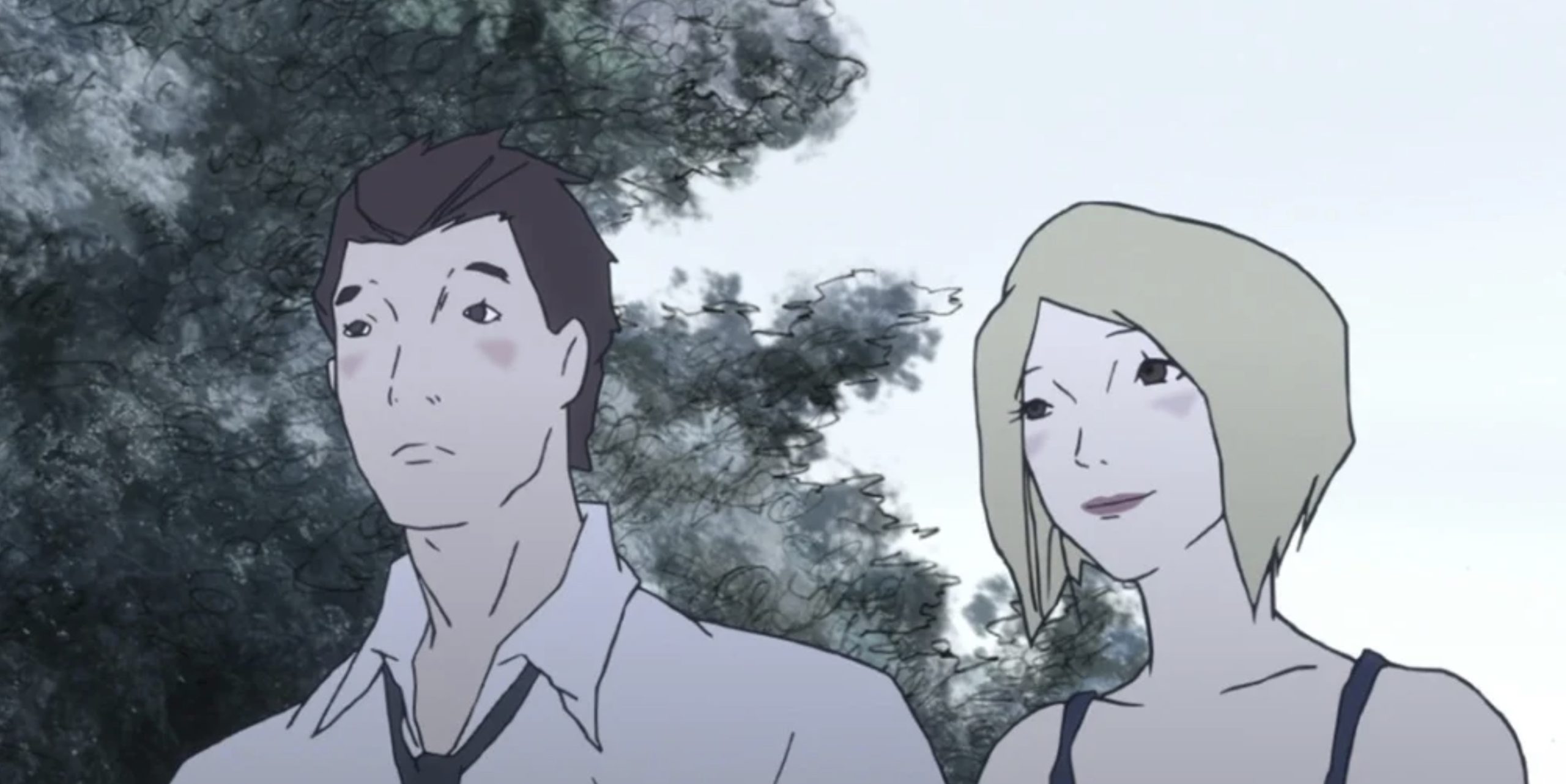
Yet, Kemonozume emphasizes the power of love to transcend such barriers, showcasing the resilience of human connection in the face of adversity.
In its depiction of the Kifuken School, Kemonozume draws parallels to traditional Yakuza families, with their secretive nature and institutional hierarchy. While their primary focus is on hunting down Shokujinki rather than engaging in criminal activities, the complex relationships within the Kifuken School echo the intricate dynamics found within Yakuza organizations.
Much like the intricate web of alliances and rivalries in Like a Dragon, the characters in Kemonozume explore a similarly convoluted network of friends and foes within their martial arts community, adding depth and complexity to the narrative.
17. Akira
In the annals of anime history, Akira stands as a seminal work, a potent symbol in both the cyberpunk and punk genres. Released in 1988, it remains a powerful icon, immersing viewers in a dystopian future where the accidental destruction of Tokyo in 1988 precipitated a world war, plunging Neo-Tokyo into chaos characterized by corruption, terrorism, and rampant gang violence.
At the heart of Akira’s narrative is protagonist Shotaro Kaneda, whose days are spent battling rival gangs in a bid to establish the dominance of his own gang, the Capsules.
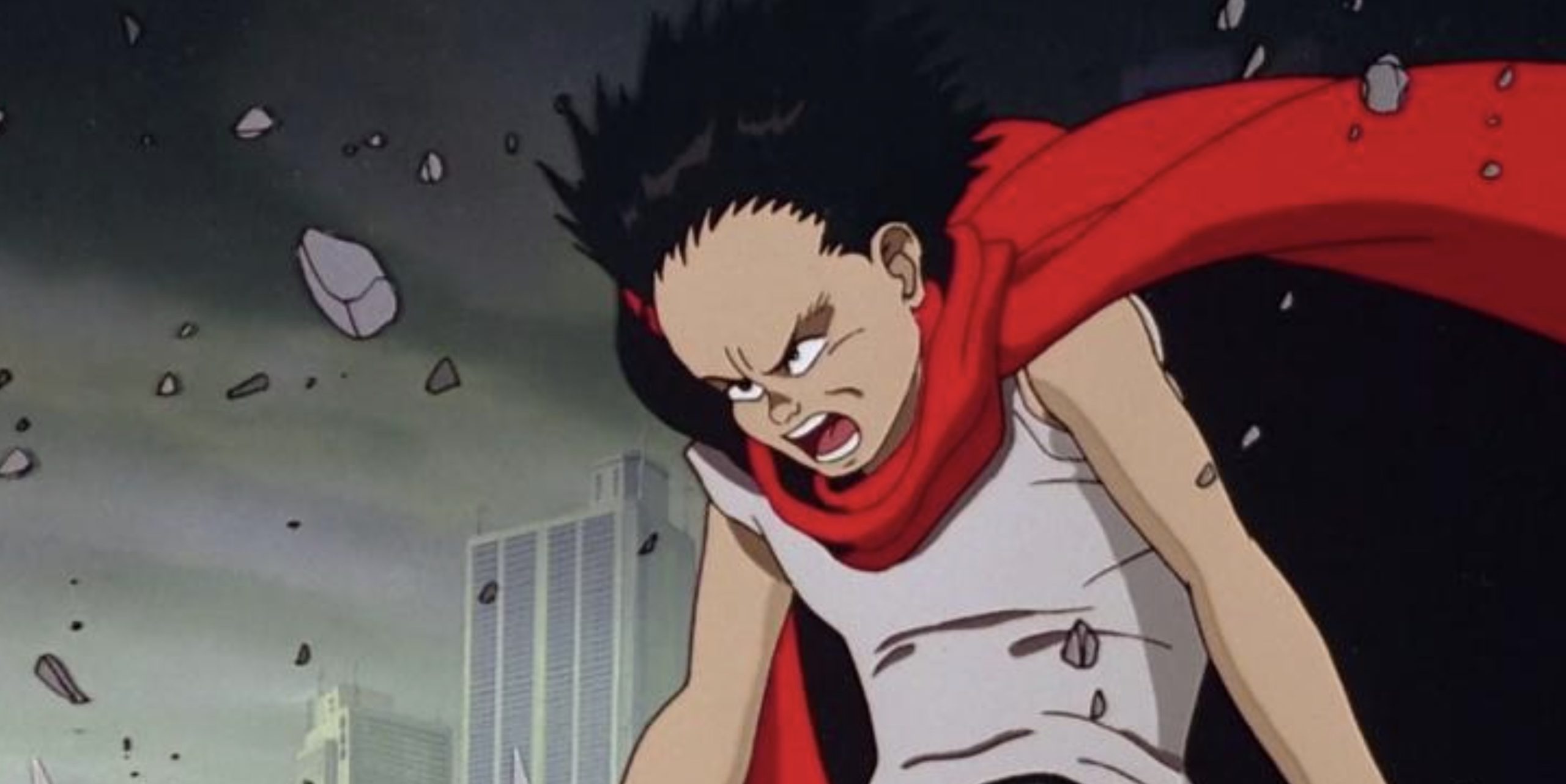
However, a fateful encounter involving his friend Tetsuo Shima and the esper Takashi, who seeks escape from a government research facility, sets off a chain of events that awakens Tetsuo’s latent psychic abilities, akin to those of the legendary esper Akira who wrought destruction upon Tokyo in 1988.
While Akira offers a heady blend of action and philosophical exploration, its focus on gang life takes a backseat to its broader narrative themes. Nevertheless, the dynamics within the Capsules biker gang bear a striking resemblance to the themes prevalent in the Yakuza series.
While the Capsules may not constitute a vast criminal organization akin to the Yakuza, the concepts of bravery, camaraderie, and loyalty among its members echo the bonds shared by characters like Kiryu and Nishikiyama in the Yakuza universe.
The complex interplay between friends-turned-enemies, as exemplified by Kaneda and Tetsuo, mirrors the intricate relationships depicted in the Yakuza series, offering viewers a compelling exploration of loyalty, betrayal, and the bonds of brotherhood in the face of adversity.
16. Golden Kamuy
In the ongoing anime Golden Kamuy, which had a manga run from 2014 to 2022, viewers are treated to an enthralling tale that combines alternate history with amazing treasure-hunting adventures.
Protagonist Saichi Sugimoto, a veteran of the Russo-Japanese war, is drawn out of retirement as he begins a quest to uncover the hidden fortune of gold belonging to the Ainu people. This quest not only showcases the rich culture of the Ainu people but also features authentic Ainu language, adding depth and authenticity to the narrative.
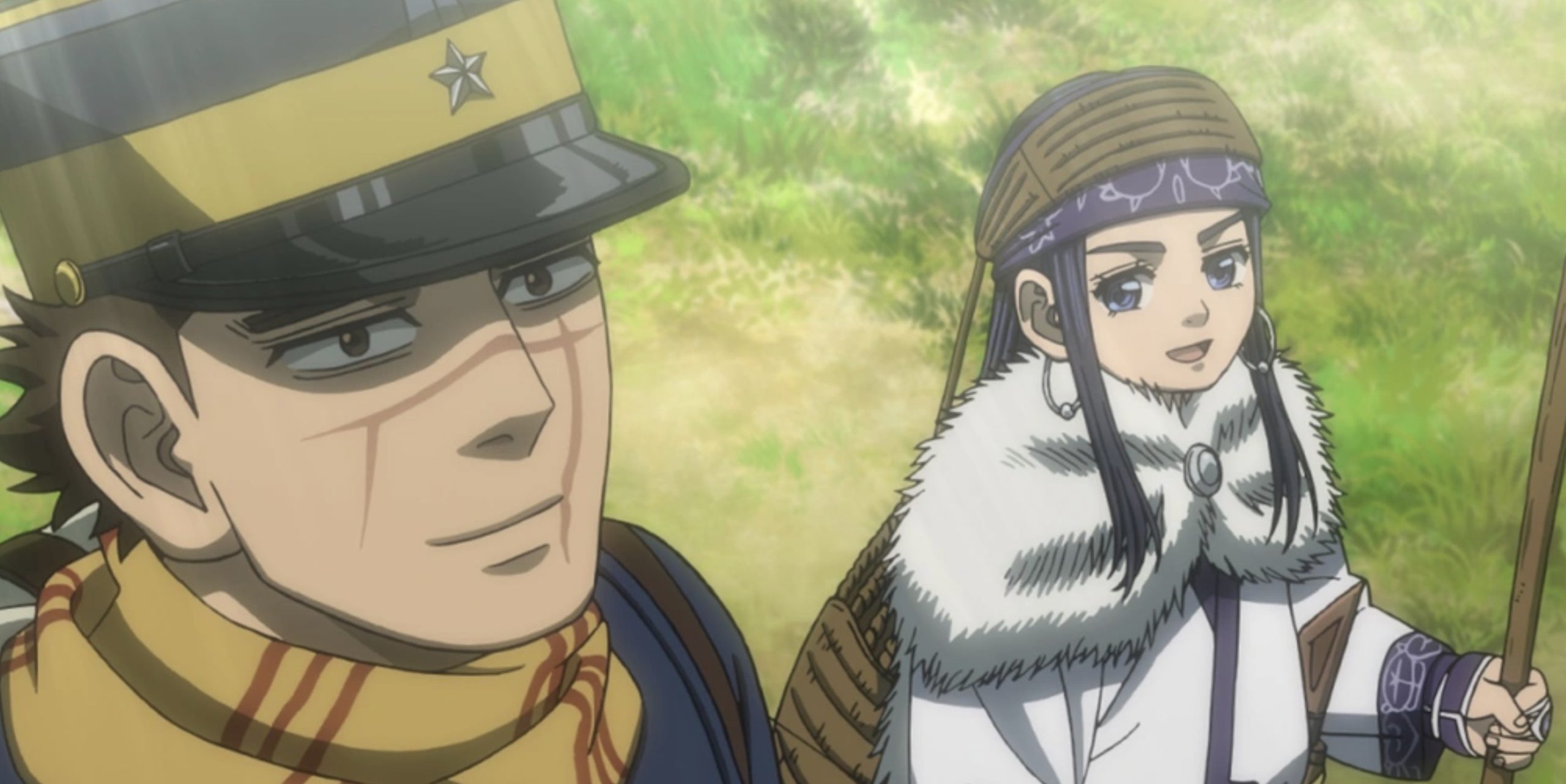
While Golden Kamuy may not be a traditional crime story like Yakuza, its premise of interlocked factions vying for a secret stash of gold bears resemblance to the conflicts often depicted in Yakuza narratives.
Much like in Yakuza, where rivaling gangs compete for power and influence, Saichi’s journey is fraught with alliances that shift and enemies who may become temporary allies in pursuit of the treasure.
The dynamic relationships among the characters in Golden Kamuy mirror the perpetual ebbs and flows of partnerships and conflicts seen in Yakuza clans.
Saichi’s ragtag group finds themselves entangled in battles and alliances with various factions, including rivals like Hijikata Toshizo and the Hokkaido 7th Division. Through these interactions, Golden Kamuy explores themes of loyalty, betrayal, and the complexities of human relationships, much like the Yakuza series.
While Golden Kamuy may not focus solely on criminal enterprises, its exploration of hidden treasures and the intricate web of alliances and conflicts among its characters offers a compelling parallel to the Yakuza, showcasing the enduring appeal of stories centered around power struggles and camaraderie in the face of adversity.
15. Texhnolyze
“Texhnolyze” offers an experimental take on the Yakuza concept, amazing fans with its dystopian narrative set in the manmade underground city of Lux. In this 2003 anime, individuals like prizefighter Ichise, executive Onishi, and young girl Ran explore their seemingly unrelated lives, which eventually converge to shape the fate of the city.
Yakuza elements in “Texhnolyze” manifest subtly through three factions vying for control over the city and its Texhnolyze prosthetics. The Organo faction, driven by business interests, collaborates with the criminal underworld to dominate the Texhnolyze market.
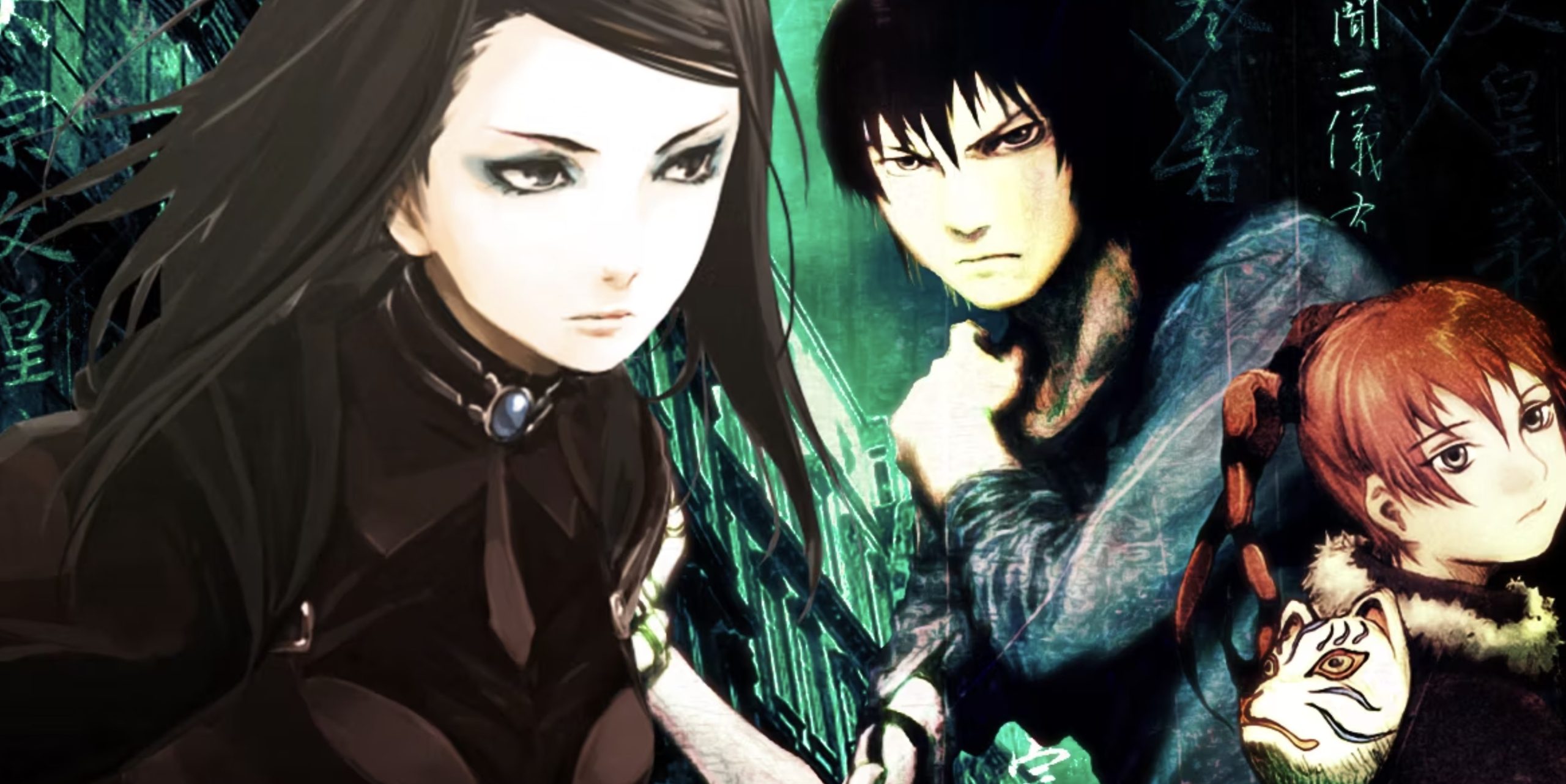
On the other hand, the populist Salvation Union opposes Organo’s monopolistic practices. Lastly, the radical group Racan seeks to exploit Texhnolyze for personal gain.
In parallel to the vibrant lives of Yakuza protagonists like Kiryu and Kasuga, “Texhnolyze” portrays a grim reality in the underground city, where Ichise is unwillingly entangled in an inter-faction conflict.
The Organo faction in “Texhnolyze” mirrors the organized structure of the Yakuza, while the Salvation Union and Racan offer intriguing parallels to dissenting groups within society.
14. Hinamatsuri
In “Hinamatsuri,” Yoshifumi Nitta, a mid-level member of the Ashikawa-gumi Yakuza clan, finds his life turned upside down when an amnesiac girl named Hina with psychokinetic powers appears in his apartment from the future.
Before he can comprehend the situation, more girls from the future arrive, either to retrieve Hina or to eliminate her.
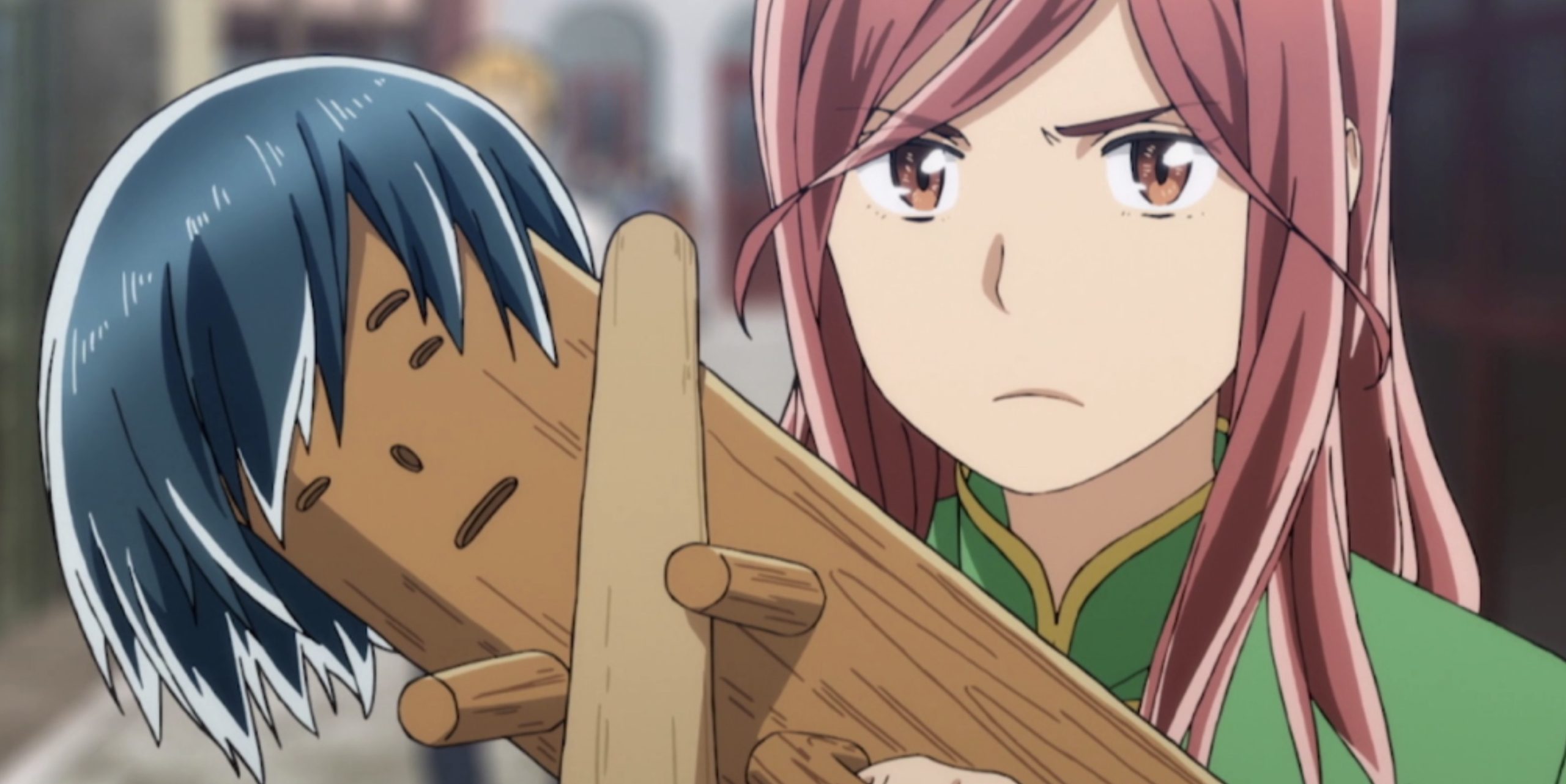
Over its ten-year manga run and its 2018 anime adaptation, “Hinamatsuri” amazed audiences with its blend of science fiction and comedy, detailing Yoshifumi and Hina’s unexpected adventures. Fans of the Yakuza franchise will find “Hinamatsuri” intriguing for its unique take on Yakuza themes.
Similar to Kiryu’s role as the manager of his own orphanage in the Yakuza series, Yoshifumi’s unexpected caretaker role for the psychokinetic Hina adds depth to his character. While “Like a Dragon” doesn’t incorporate supernatural elements, “Hinamatsuri” offers an imaginative interpretation of what could happen if a Kiryu-like figure found himself responsible for a psychic child sought after by both the Yakuza and the government.
13. Black Lagoon
For fans craving thrilling adventures on the high seas, “Black Lagoon” is the perfect choice. This 2006 anime, based on an ongoing manga, follows the exploits of the Lagoon Company, a group of mercenaries operating in the waters of Southeast Asia during the 1990s.
Their encounters range from clashes with the Japanese Yakuza and Russian mafia to engagements with Colombian cartels and Chinese Triads. Each episode is packed with adrenaline-pumping action, including fistfights, gun battles, and intense sea skirmishes aboard their vessel, the Black Lagoon.
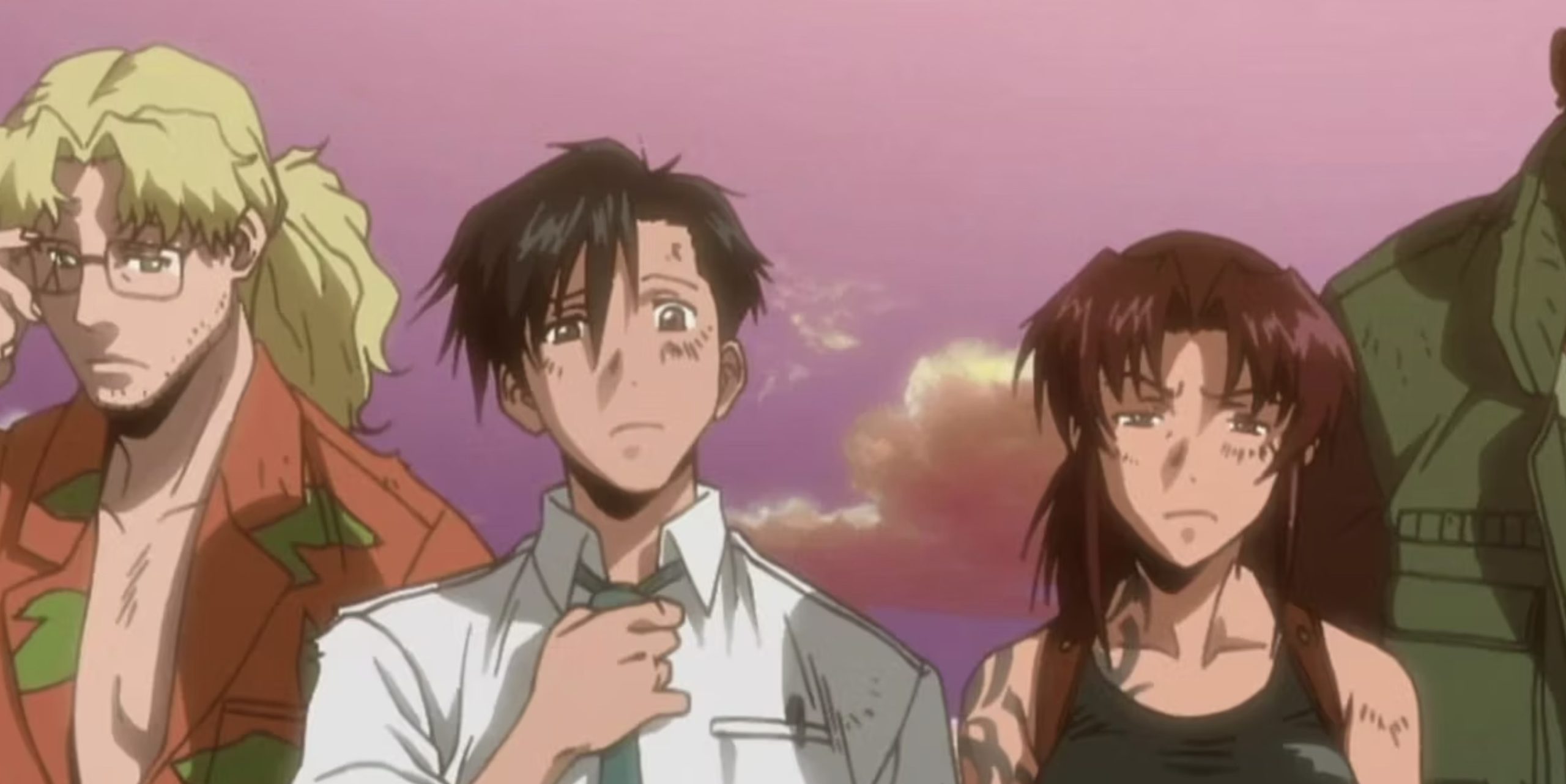
Central to the series is the dynamic chemistry among the members of the Lagoon Company. Salaryman Rock finds himself drawn into their world after a kidnapping gone awry, with Revy emerging as the team’s formidable fighter who forms a protective bond with him.
Dutch, the captain, explores situations with a blend of diplomacy and toughness, while Benny, the resident mechanic and tech expert, contributes his skills to the group’s operations.
Similar to the Yakuza series, where players assist Kiryu in climbing the ranks of criminal organizations, “Black Lagoon” immerses viewers in the gritty underworld of mercenaries and criminal syndicates.
The tasks undertaken by the Lagoon Company echo the errands performed by Kiryu, with each encounter showcasing intense confrontations and rivalries.
Rock’s integration into the group mirrors the audience’s perspective, offering insight into what Kiryu’s life might have been like if he were tasked with maritime missions for the Yakuza.
“Black Lagoon” provides a thrilling and action-packed experience akin to the adrenaline-fueled adventures of the Yakuza series, making it a must-watch for fans craving pulse-pounding excitement on the high seas.
12. Salaryman Kintaro
In the 1994 manga “Salaryman Kintaro,” we encounter one of the earliest portrayals of the “reformed gangster” archetype in action stories. The protagonist, Kintaro Yajima, initially gained notoriety as the leader of a Bosozoku group.
However, following the tragic loss of his wife, Kintaro decides to leave behind the biker gangs and custom motorcycles to pursue a career as a salaryman. Starting out as a fisherman, a chance encounter leads Kintaro to join the sales department of a construction firm.
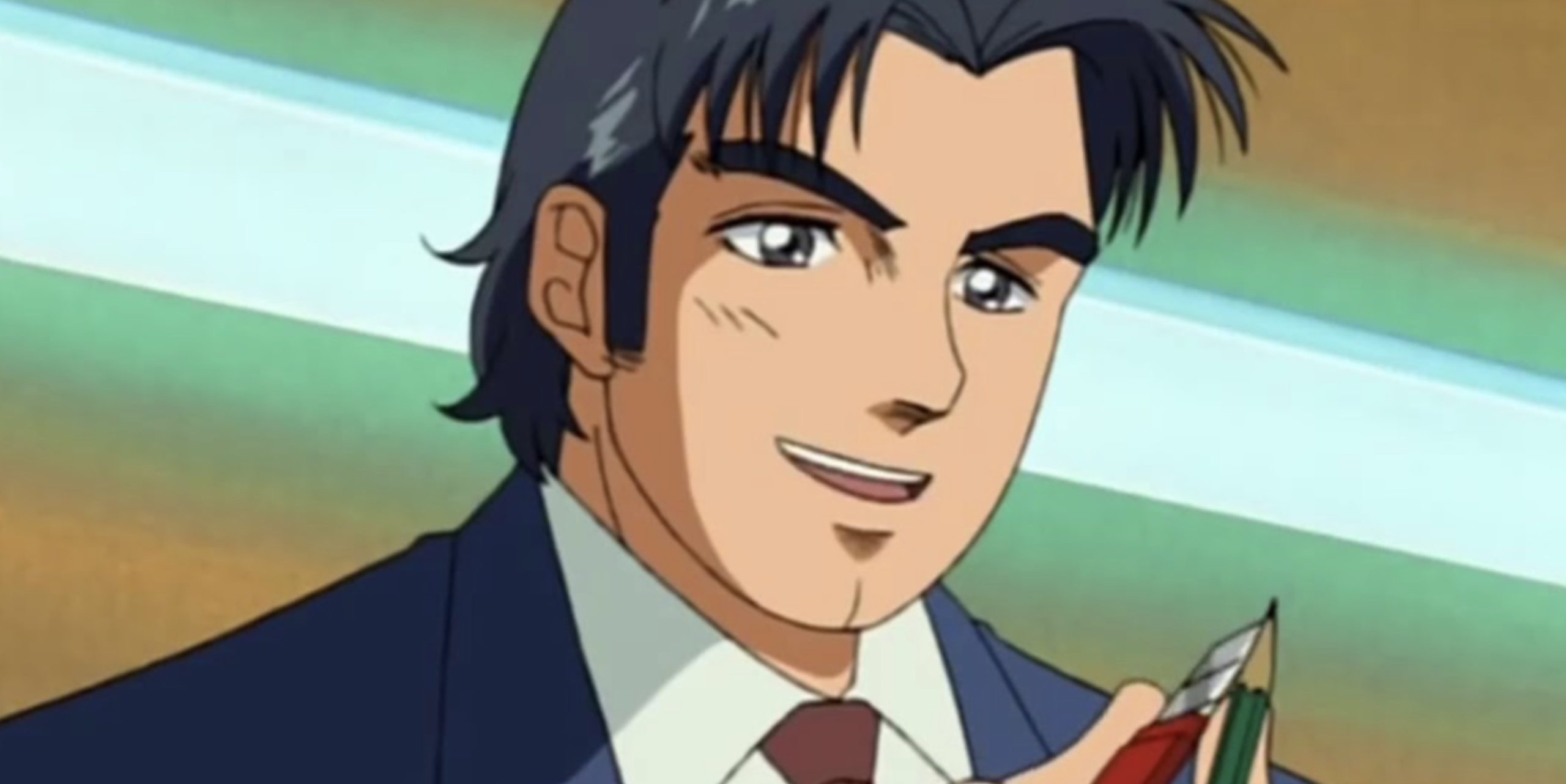
Despite its serious premise, the anime adaptation of “Salaryman Kintaro” offers intriguing insights and moments of comedy as it depicts Kintaro’s transition to his new life. The 2001 series provides a fresh perspective on late 20th-century Japan and offers a unique take on the challenges faced by individuals seeking redemption and a fresh start.
Similar to the Yakuza series, where protagonists like Kiryu explore complex moral dilemmas and strive for personal growth, Kintaro’s journey mirrors the struggles of reformed gangsters seeking to leave their past behind.
His determination to climb the corporate ladder as a promise to his late wife echoes the resilience and sense of duty exemplified by characters like Kiryu. “Salaryman Kintaro” presents a compelling exploration of the “gangster retiree” trope from the perspective of a salaryman, offering fans a fresh and engaging narrative.
11. The Way Of The Househusband
In “The Way of the Househusband” (or “Gokushufudo”), we witness the amusing scenario of Tatsu, known as the “Immortal Dragon” in his Yakuza days, trading in his life of crime to support his career-driven wife, Miku.
This slice-of-life manga later adapted into an anime in 2020, goes into the hilariously unconventional daily life of Tatsu, which proves to be anything but mundane.
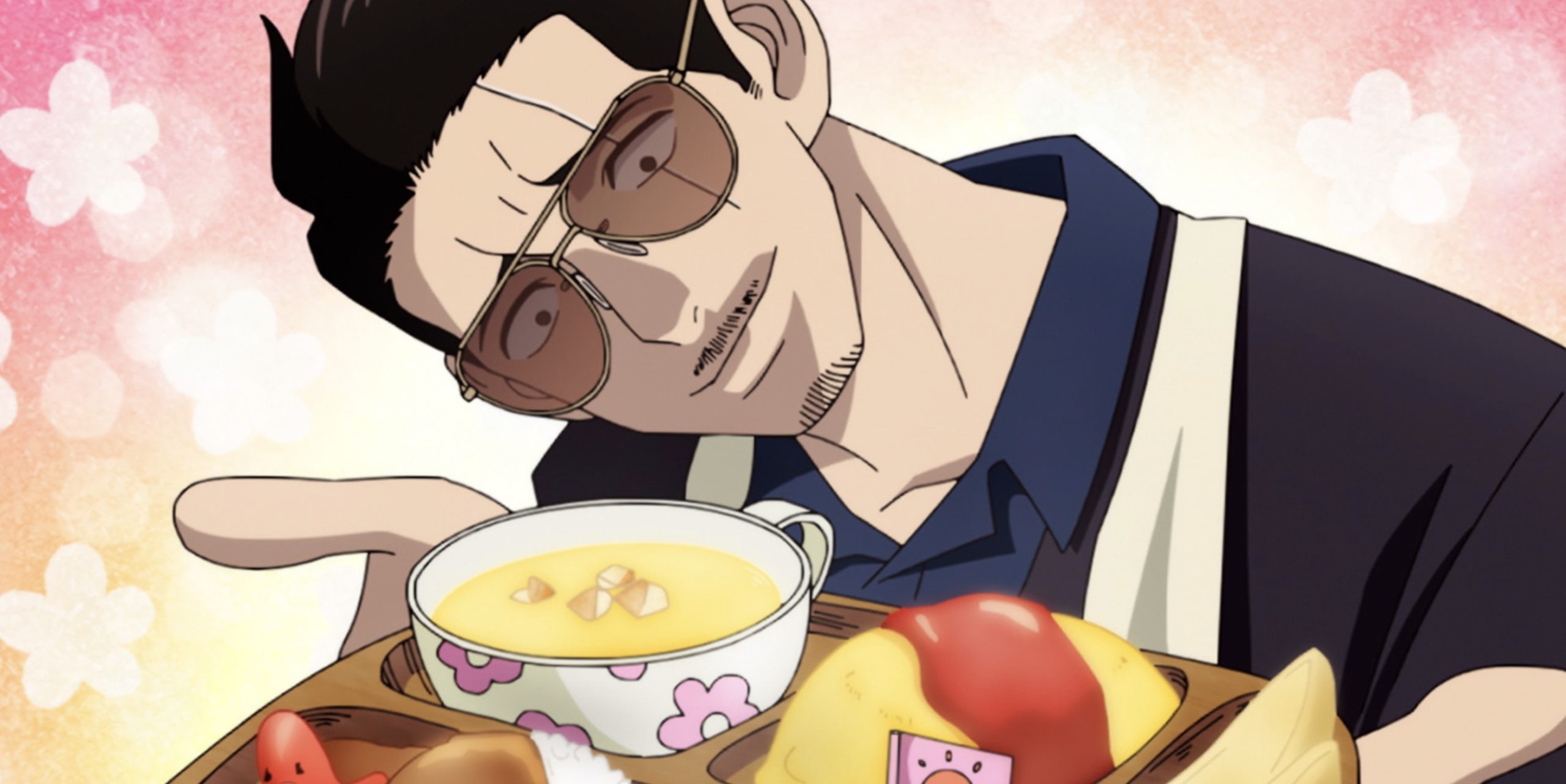
Throughout the series, Tatsu is depicted engaging in ordinary household chores despite his intimidating reputation. However, his past as a Yakuza boss continually resurfaces, leading to comedic encounters with former colleagues and rivals from the underworld. Unlike the more violent portrayals of Yakuza life seen in other anime, “The Way of the Househusband” offers a refreshing take with its focus on slice-of-life elements.
Similar to the Yakuza games, Tatsu’s attempts at retirement are often thwarted by the unexpected appearance of his Yakuza connections. The comedic tone of the series parallels the humorous misadventures of Kiryu in “Like a Dragon,” where his efforts to retire are consistently met with challenges and setbacks.
For fans seeking a lighthearted peek into the life of a former Yakuza member adjusting to domesticity, “The Way of the Househusband” offers a delightful change of pace.
10. Wild Adapter
In Wild Adapter, the narrative revolves around a yakuza war fueled by a potent drug known as WA or “Wild Adapter,” which transforms users into animalistic beings with superhuman strength before leading to their demise.
Amidst this conflict, Kubota, a 17-year-old thrust into leadership of the Izumokai yakuza youth group, crosses paths with Tokitoh, a stranger with amnesia who possesses a mysterious connection to the drug.
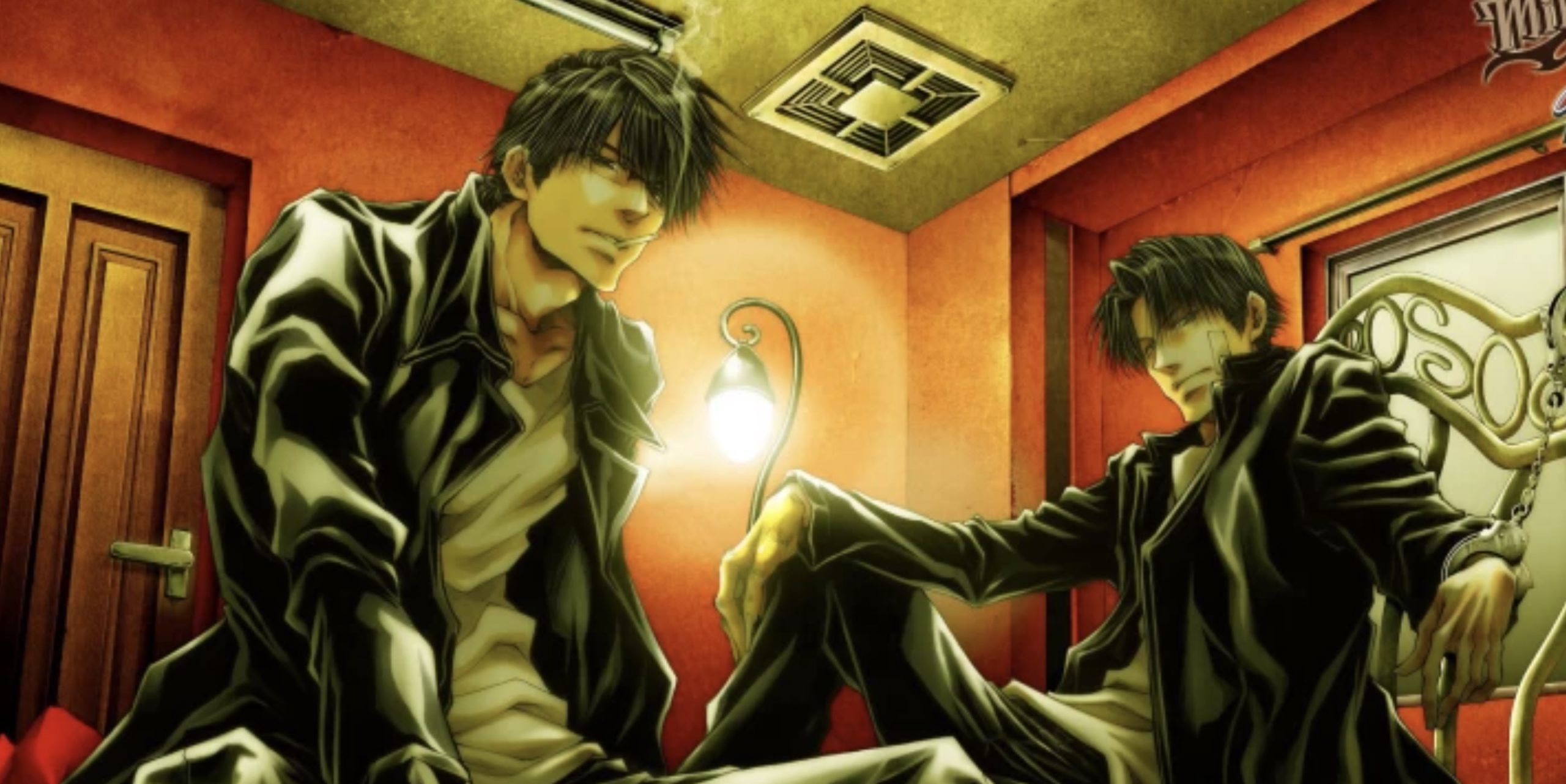
As Kubota and Tokitoh explore the dangerous underworld of yakuza violence and intrigue, they find themselves unwittingly embroiled in the bloody war between the Izumokai and their rivals, the Toujougumi.
The presence of the Wild Adapter drug adds a supernatural element to the story while underlying themes of mystery and crime drive the narrative forward.
Similar to the Yakuza series, Wild Adapter explores the dynamics of rival factions vying for control and power. While the Yakuza serves as a backdrop in Wild Adapter rather than the central focus, the story’s exploration of the criminal underworld and its impact on the lives of its characters aligns with themes found in the Yakuza franchise.
Furthermore, the inclusion of boys’ love undertones adds an additional layer of complexity to the narrative, offering a unique take on the crime genre.
9. Phantom: Requiem For The Phantom
In Phantom: Requiem for the Phantom, viewers are thrust into the shadowy Inferno, a powerful assassin syndicate where the protagonist, Ein, explores life as an amnesiac assassin.
Alongside Ein is Zwei, a witness to one of Inferno’s killings who becomes ensnared in the organization’s machinations after being brainwashed into becoming an assassin himself.
The anime’s narrative goes into the complex web of assassinations and espionage within Inferno, offering unexpected twists and turns that keep viewers on the edge of their seats.
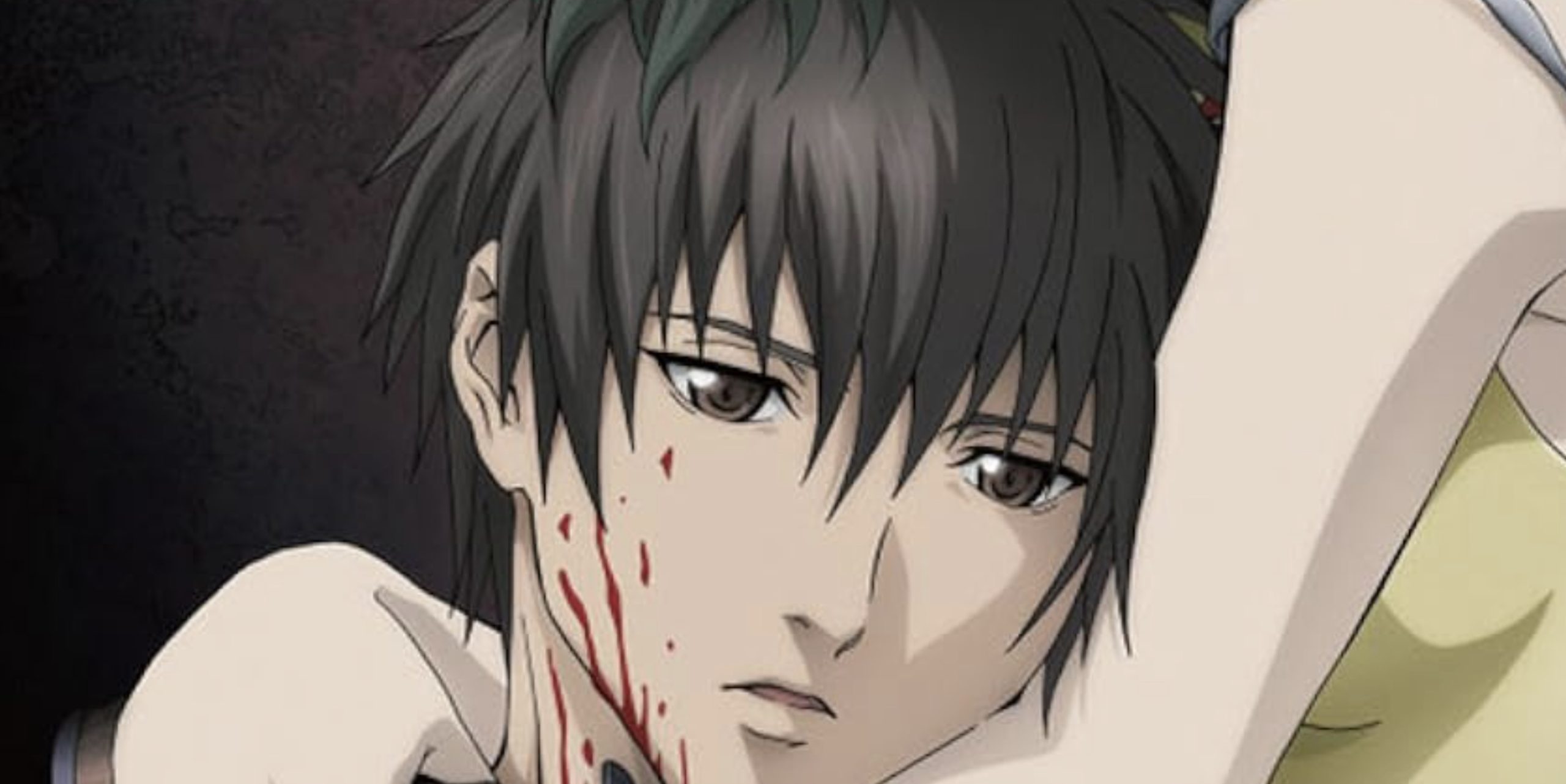
This unique take on the crime genre, focusing on assassins and paramilitary corporations, adds a fresh layer of intrigue to the traditional gangster anime formula.
Similar to the Yakuza series, Phantom: Requiem for the Phantom explores themes of loyalty, identity, and the consequences of being embroiled in criminal enterprises.
The evolution of Zwei from a cold-blooded killer to a more empathetic protagonist adds depth to the story, contrasting with the character arcs of protagonists like Kiryu in the Yakuza franchise.
Watching Zwei and other assassins explore their relationships within the crime syndicate offers a compelling narrative that fans of the Yakuza series will appreciate for its complexity and international scope.
8. Gungrave
In the 2003 Gungrave anime, viewers are immersed in a tale of revenge that mirrors the storyline of the Gungrave video game. The narrative revolves around two best friends, Brandon Heat and Harry MacDowell, whose bond is shattered by ambition and betrayal.
After undergoing necrolyzation, Brandon is resurrected as Beyond The Grave, determined to dismantle the Millennion crime syndicate now led by his former friend Harry.
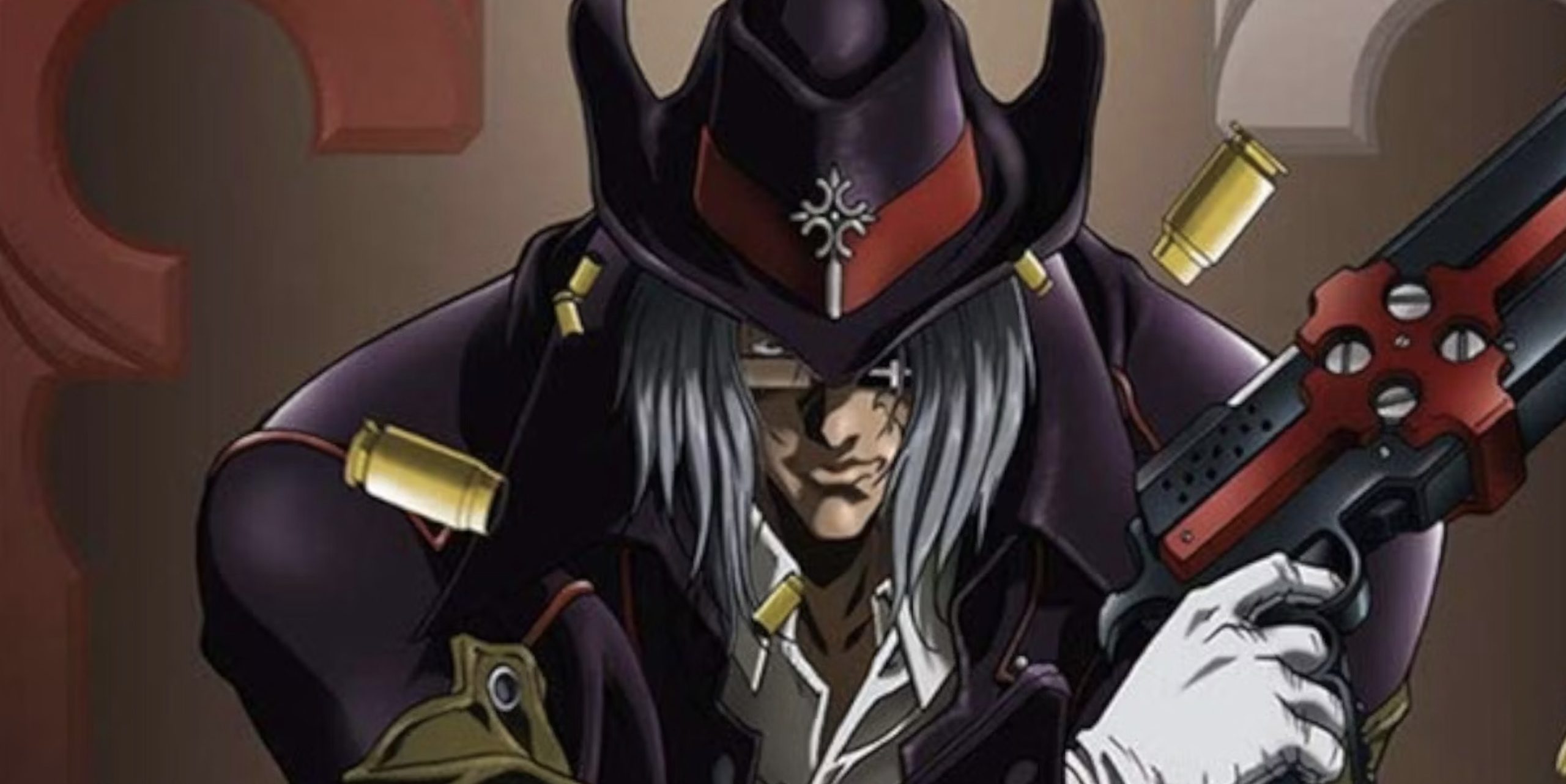
Gungrave blends action-packed sequences with humor, drawing inspiration from the stylish gunslinger archetype and infusing a futuristic Wild West atmosphere into its setting.
Similar to the Yakuza franchise, Gungrave explores themes of loyalty, betrayal, and the consequences of power dynamics within criminal organizations.
The dynamic between Brandon Heat and Harry MacDowell mirrors the tumultuous relationship between Kiryu and Nishikiyama in Yakuza, albeit with a more violent twist as Brandon transforms into Beyond the Grave. Fans of anime who enjoy a blend of hardcore action and Western aesthetics will find Gungrave, created by Trigun’s Yasuhiro Nightow, to be a compelling watch.
7. K Project
In K Project, an alternate timeline Japan is ruled in secrecy by the Seven Clans of Color, powerful factions comprised of psychics who engage in silent cold wars and subtle displays of power.
The story kicks off when Yashiro Isana, initially innocent, becomes the target of the other clans after being accused of killing a prominent Red Clan member.
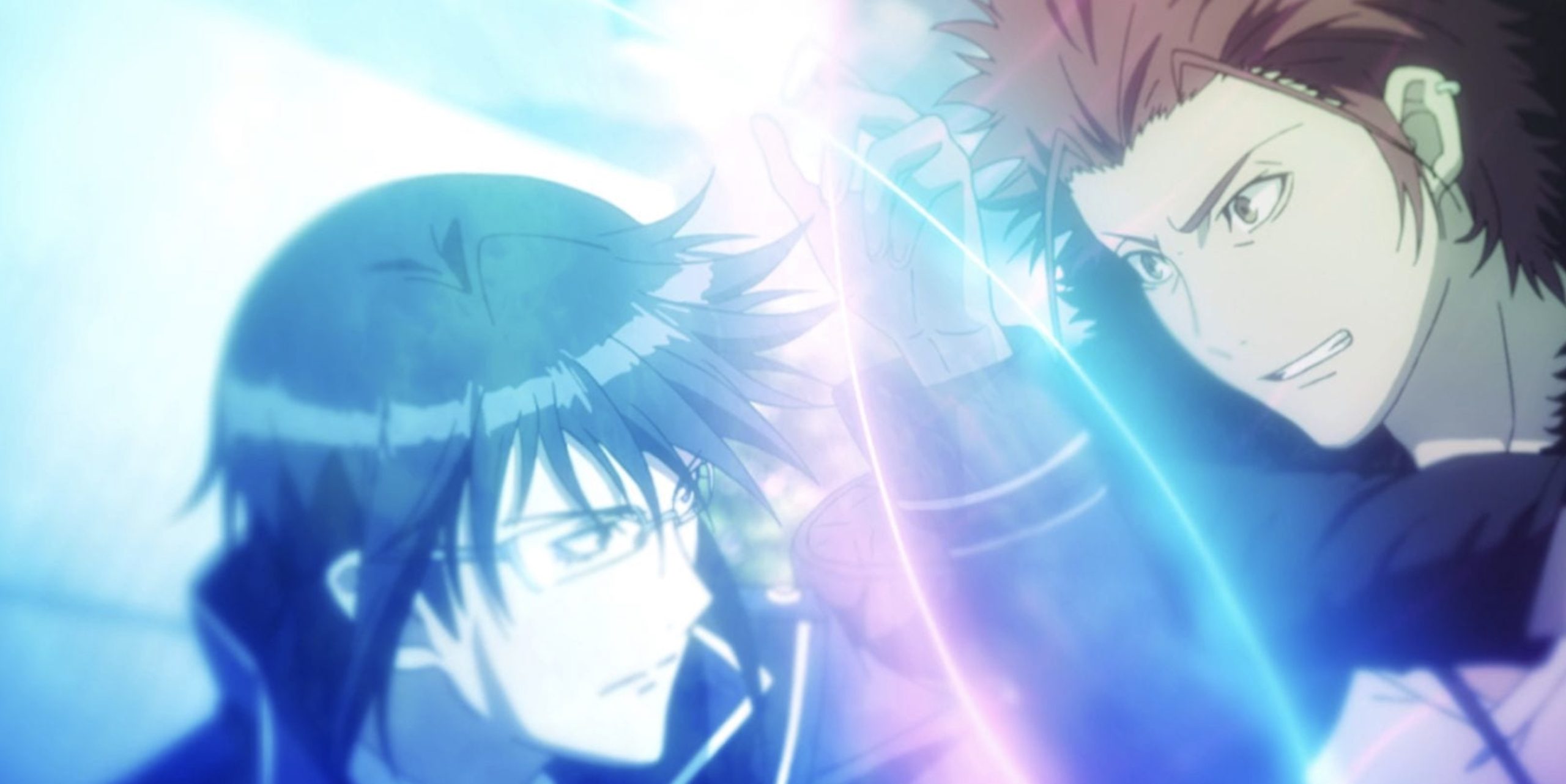
However, the narrative takes a twist when Yashiro rediscovers his true identity as Adolf Weismann, the First and Silver King. While K Project may lack the complex interpersonal narratives typical of gang-oriented stories, it compensates with intriguing power scaling and action scenes.
In terms of similarity to Yakuza, while K Project introduces a supernatural element with Aura-wielding Clans, its depiction of clans locked in states of peace and conflict resonates with Yakuza families.
Each Clan in K Project possesses unique characteristics and sub-cultures, allowing fans to not only root for protagonist Yashiro Isana but also engage with the conflicting principles and philosophies of each Clan, its leaders, and its members.
6. Jormungand
In Jormungand, organized crime intersects with the international arms trade, offering a unique perspective on the underworld of illegal weapons trafficking.
Protagonist Koko Hekmatyar, a young arms dealer working for HCLI, explores the murky waters of the black market, selling weapons to various clients ranging from mafia bosses to assassins.
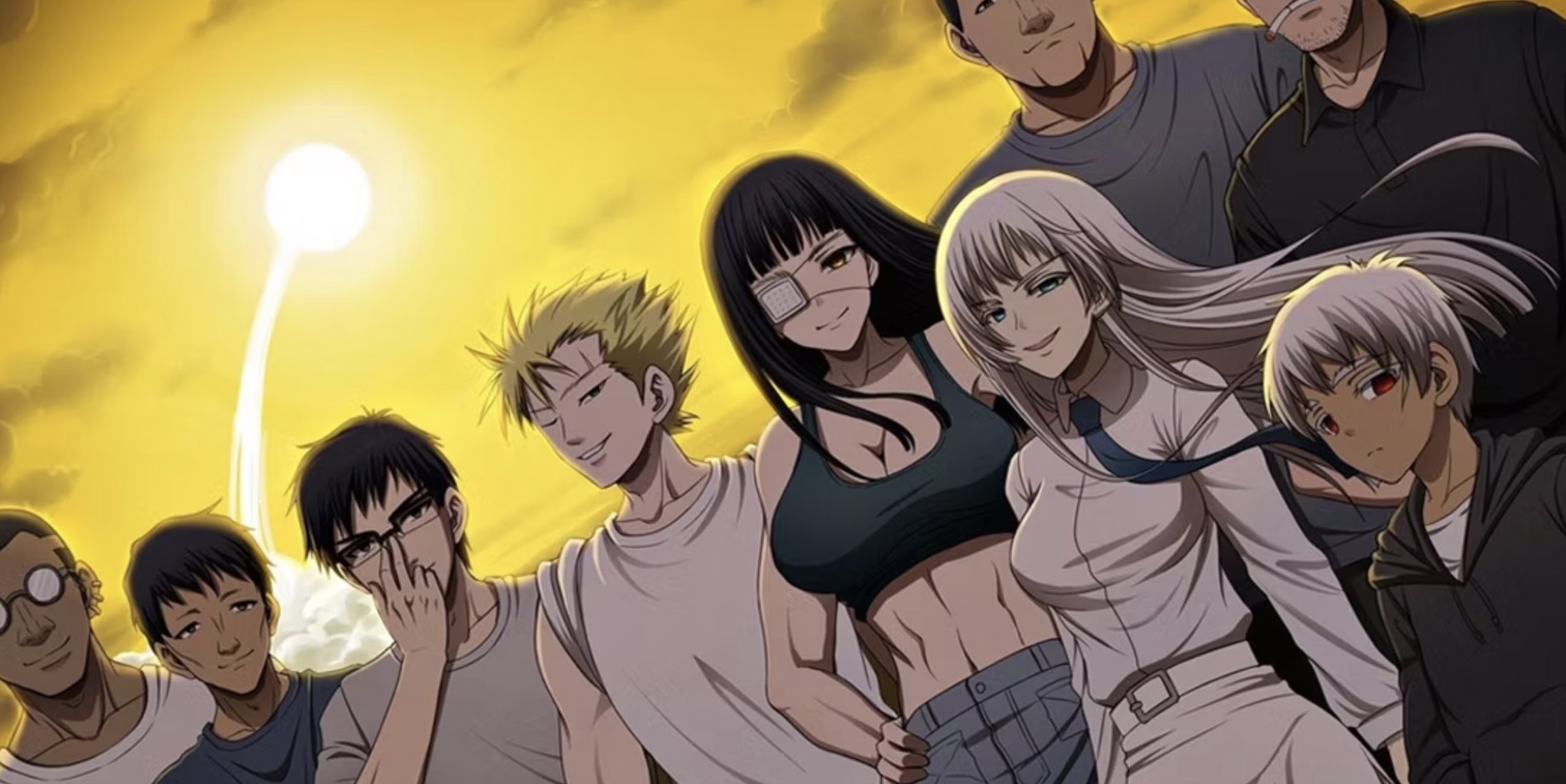
Similar to the Yakuza series, Jormungand explores the intricate web of alliances, rivalries, and conflicts within the criminal underworld. Koko and her team of bodyguards must explore dangerous situations, dealing with authorities, other agencies, and rival arms dealers while conducting their illicit business operations.
The addition of Jonah, a young child soldier recruited by Koko, adds a layer of complexity to the story, as his skills and experiences shape the dynamics of the group.
This dynamic and action-packed narrative provides a fresh perspective on the “everyday” lives of those involved in the arms trade, offering a thrilling and engaging experience for viewers, akin to the adrenaline-fueled adventures found in the Yakuza franchise.
5. Baccano!
In Baccano!, the concept of immortality takes center stage as the lives of various individuals intertwine throughout different timeframes, primarily during the Prohibition Era. Immortality, achieved through alchemy, becomes a driving force for many characters who use it to pursue lives of crime or mischief.
Similar to the Yakuza series, Baccano! goes into organized crime, with characters becoming involved with mafia families and engaging in heists and other criminal activities.

Characters like Miria Harvent and Isaac Dian conduct well-intentioned but comical heists, while others form alliances with mafia families such as the Gandors and Russos.
Despite the disparate backgrounds and motives of its characters, Baccano! weaves their stories together in a complex and interconnected narrative, reminiscent of the intertwining plots and relationships found in the Yakuza franchise.
The Prohibition Era setting adds an additional layer of intrigue and historical context, offering viewers a unique perspective on crime and immortality.
4. 91 Days
In 91 Days, viewers are taken on a journey through the dark and organized crime as Angelo Lagusa seeks vengeance for the murder of his family by infiltrating the Vanetti mafia family.
Spanning 91 days, Angelo’s quest for retribution leads him to form unexpected alliances and explore the treacherous underworld of the mafia.
Similar to the Yakuza series, 91 Days offers a more personal and intimate exploration of the lives of individuals involved in organized crime. Angelo’s infiltration of the Vanetti family and his interactions with its members highlight the complexities and moral ambiguities inherent in the crime.
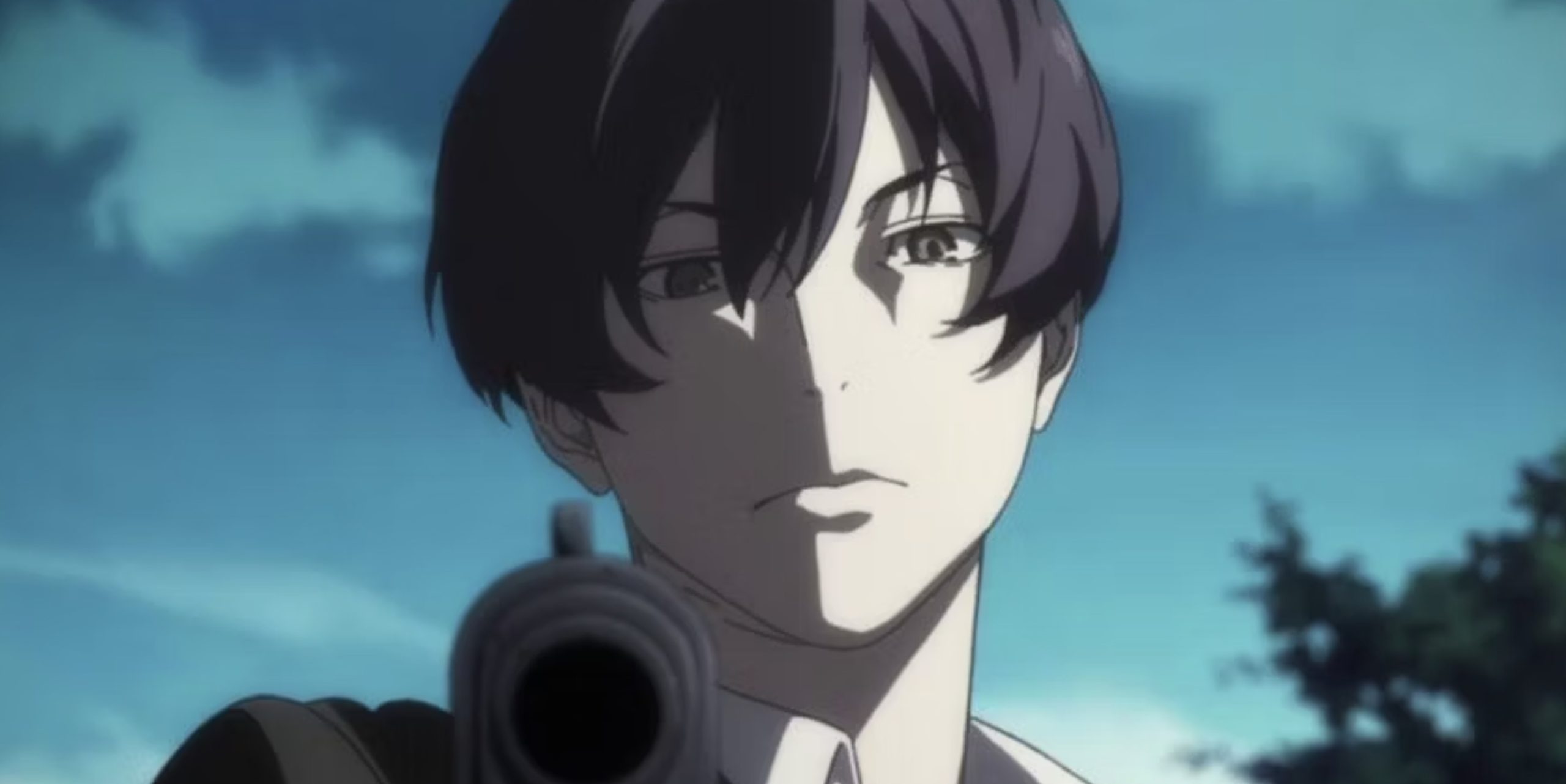
As he goes deeper into the underworld, Angelo’s motivations and cunning strategies create a compelling narrative that resonates with fans of the Yakuza franchise.
Despite its relatively short 12-episode run, 91 Days amazes audiences with its gripping storyline and amazing soundtrack. The series’ portrayal of the intricacies of mafia life and the consequences of seeking revenge serves as a poignant reminder of the harsh realities faced by those involved in organized crime.
3. Gangsta
In Ergastulum, where the mafia and criminal organizations reign supreme, Gangsta follows the exploits of mercenaries Nicolas Brown and Worick Arcangelo, known as “Handymen.” These two individuals take on jobs from both the police and the mob, handling threats that others dare not confront.
The narrative proceeds when the Handymen encounter an amnesiac woman named Alex, whose presence draws them into a series of increasingly dangerous situations. As they explore the treacherous underworld of Ergastulum, their involvement with Alex leads to unforeseen consequences.
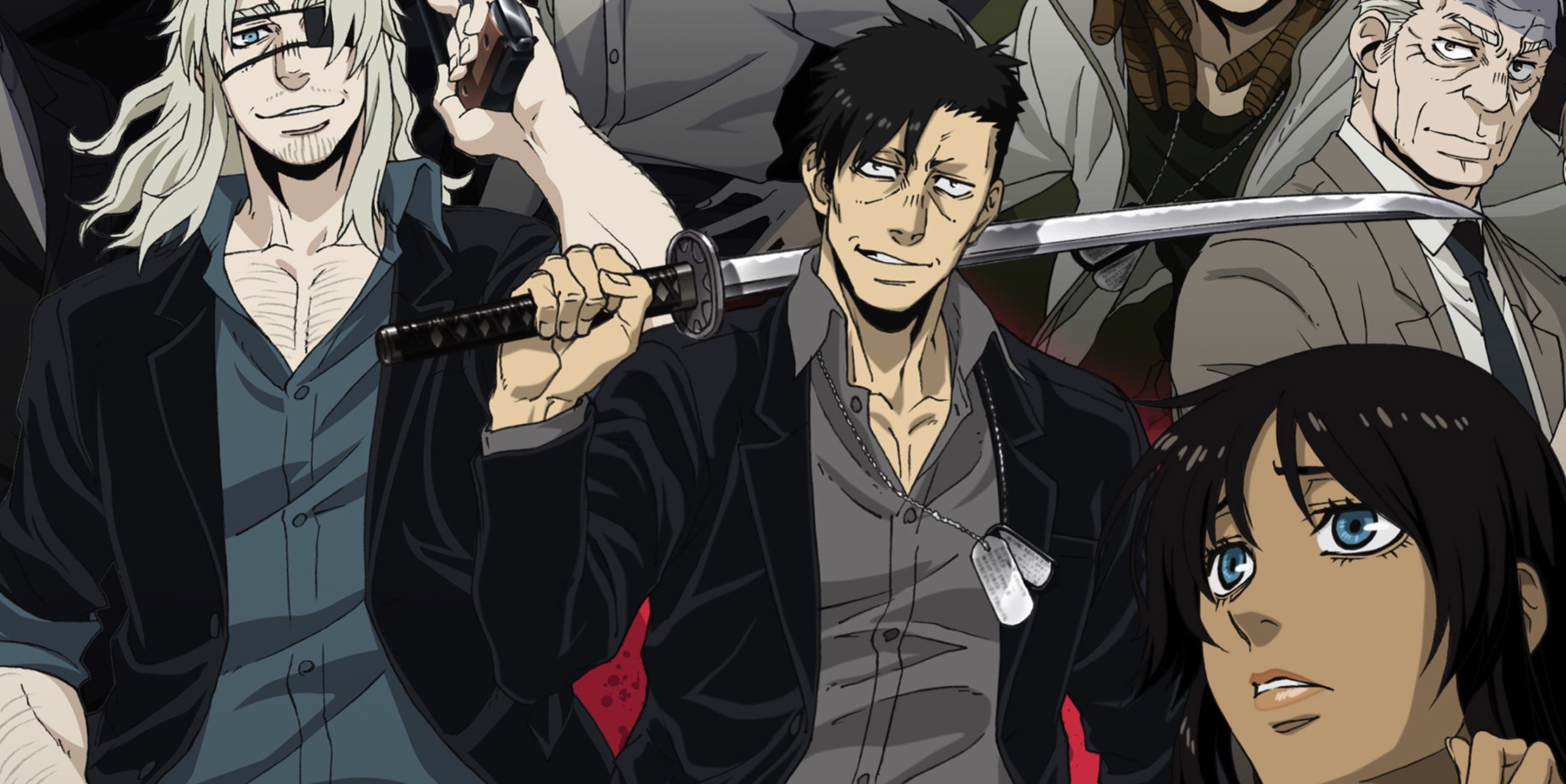
Similar to the Yakuza series, Gangsta goes into the complexities of organized crime and the individuals caught in its web. Worick and Nicolas’s roles as mercenaries parallel the early experiences of Yakuza protagonist Kiryu as he explores the hierarchy of the criminal underworld.
As their missions bring them into conflict with powerful crime families, the Handymen must confront their own limitations and the harsh realities of their world, providing a gripping and intense narrative akin to the challenges faced by Kiryu and his associates.
2. Great Teacher Onizuka
In the spirited tale of Great Teacher Onizuka (GTO), viewers are introduced to Eikichi Onizuka, a former gang member who transitions to a career in teaching. Despite initially pursuing teaching to win favor with the opposite sex, Onizuka discovers a sense of morality and purpose in his new role.
Throughout the series, Onizuka begins a journey with his students, employing unorthodox methods that blend traditional teaching with his own unique approach. From wielding a chalkboard to using his fists when necessary, Onizuka’s dedication to his students knows no bounds. Despite facing challenges from his unruly class of delinquents, Onizuka strives to become the best teacher he can be.
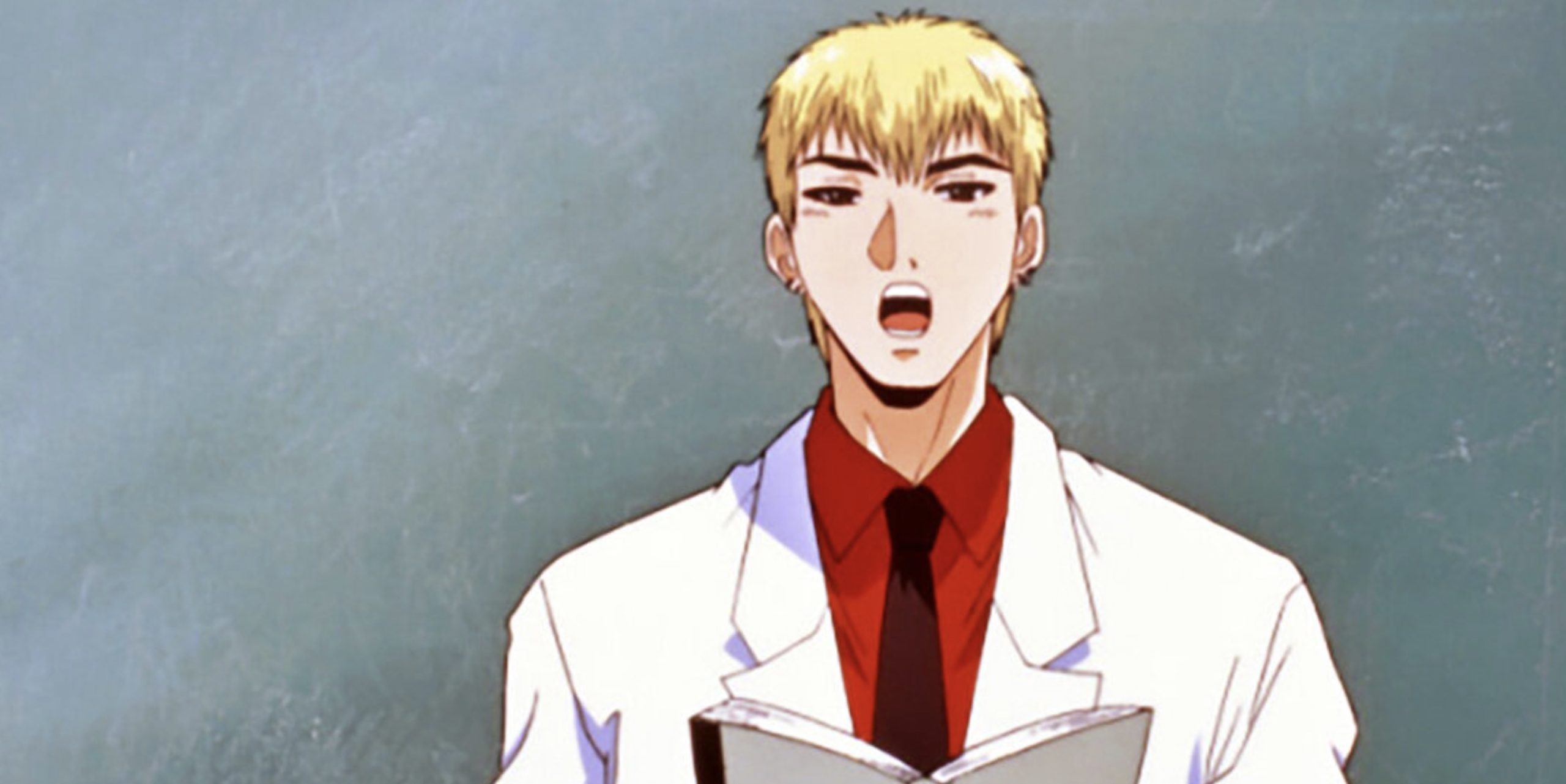
In many ways, Onizuka embodies the traits of a classic Like a Dragon protagonist. His background as a former gang member, his tough yet compassionate demeanor, and his unwavering commitment to his principles parallel the experiences of characters in the Yakuza series.
While the Yakuza may be absent from GTO, Onizuka’s indomitable spirit and unyielding determination resonate with fans of both series, leaving them to wonder what adventures await in a crossover where Onizuka meets characters with similarly strong moral compasses.
1. Gokusen
In Gokusen, viewers are introduced to Kumiko Yamaguchi, the granddaughter of a Yakuza boss who aspires to be a teacher despite her familial ties to organized crime. Despite her desires, Kumiko finds herself thrust into the role of homeroom teacher for Class 4-2, a group of unruly delinquents.
While Kumiko must keep her Yakuza identity hidden, her upbringing has equipped her with the skills to toughen up her students and guide them toward becoming better individuals.
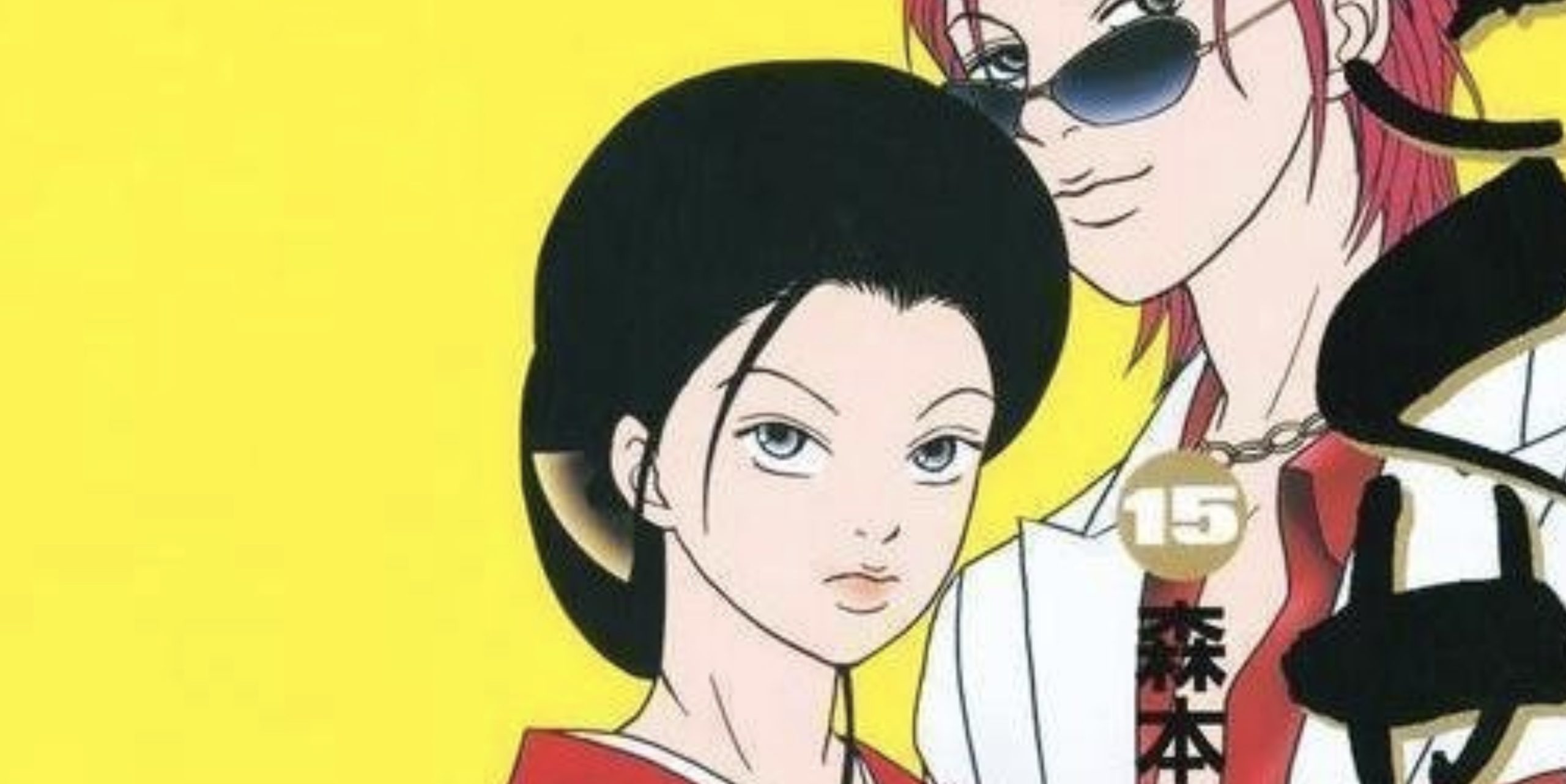
Unlike other stories, Gokusen uniquely features a protagonist who is directly connected to the Yakuza, leading to continuous challenges as her teaching duties become intertwined with matters involving organized crime.
Kumiko’s struggle to balance her dual identities and the comedic situations that arise from the collision of her teaching responsibilities and Yakuza affairs echo the dynamic and entertaining moments often found in Like a Dragon game.
Through its portrayal of Kumiko’s journey, Gokusen offers viewers a delightful blend of tough love, humor, and the complexities of exploring both education and organized crime. In many ways, Gokusen serves as a compelling side story within the rich Like a Dragon universe.
Memes of the Day
Hoka No Otoko To Kekkon Shitara Anata No Kodane Kureru?
Bunk Beds
S*x Stopwatch
Joshi Luck


